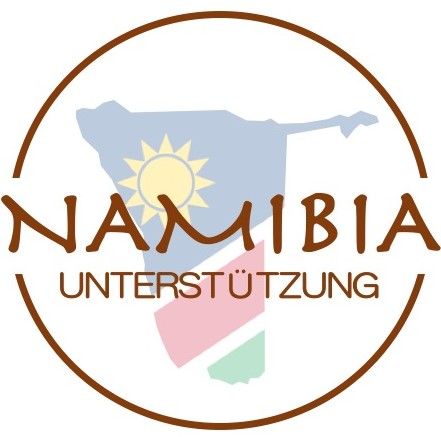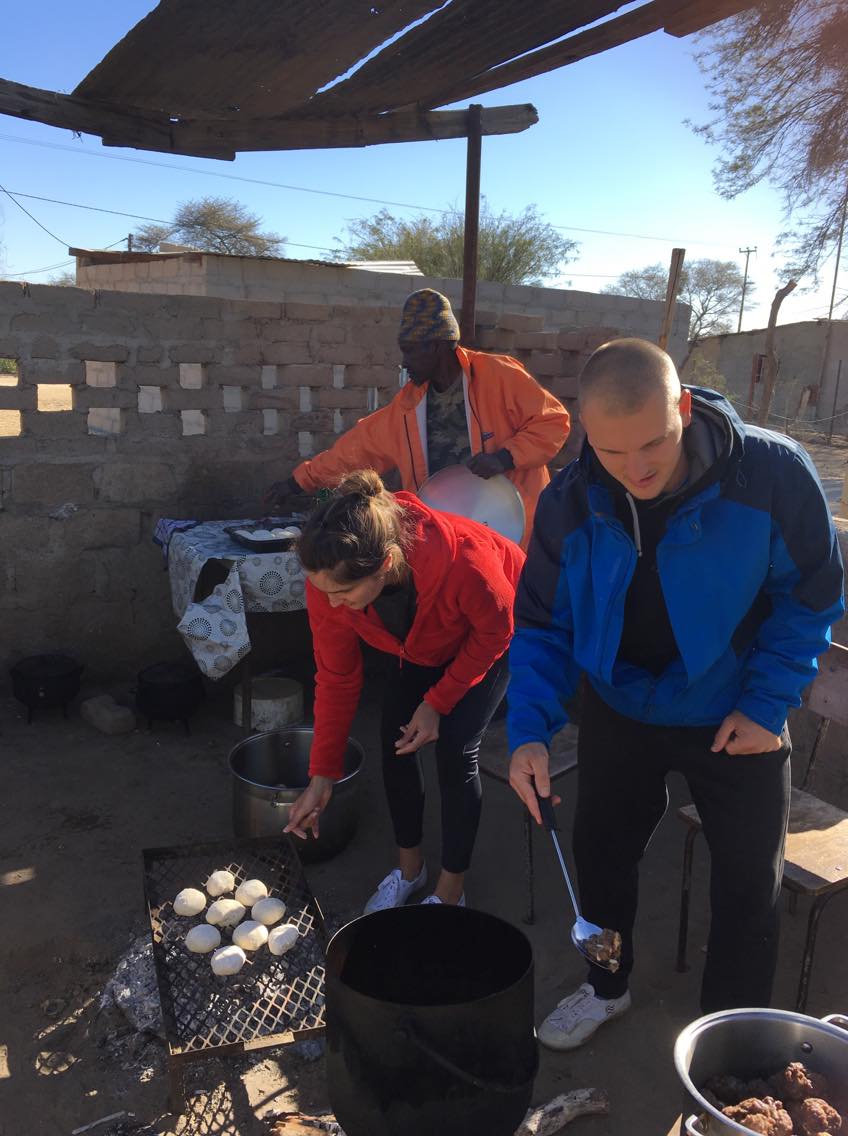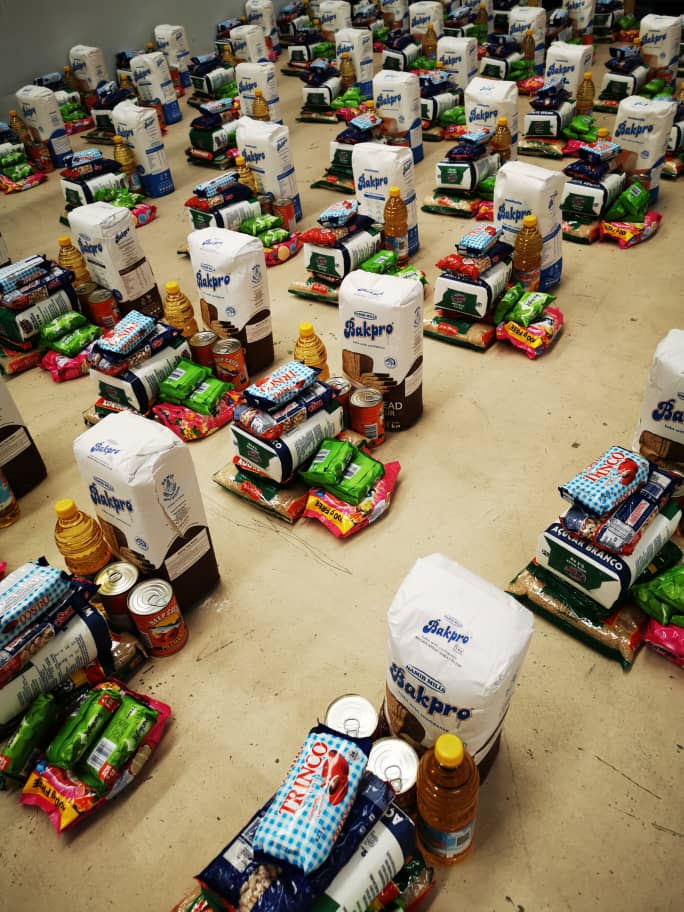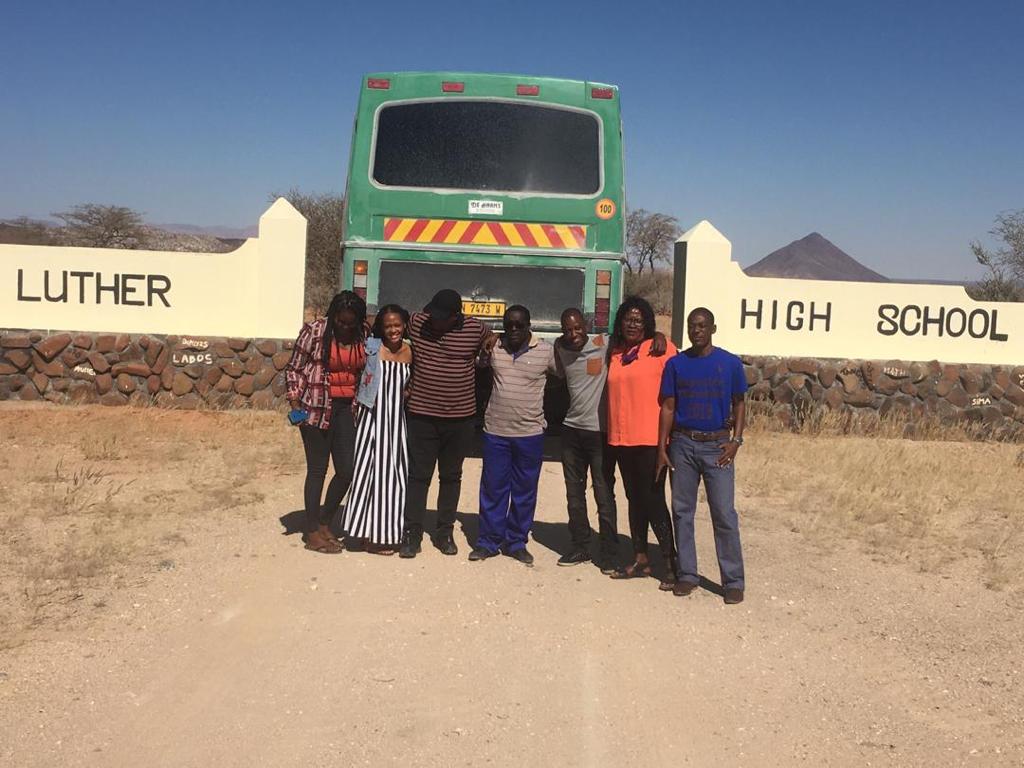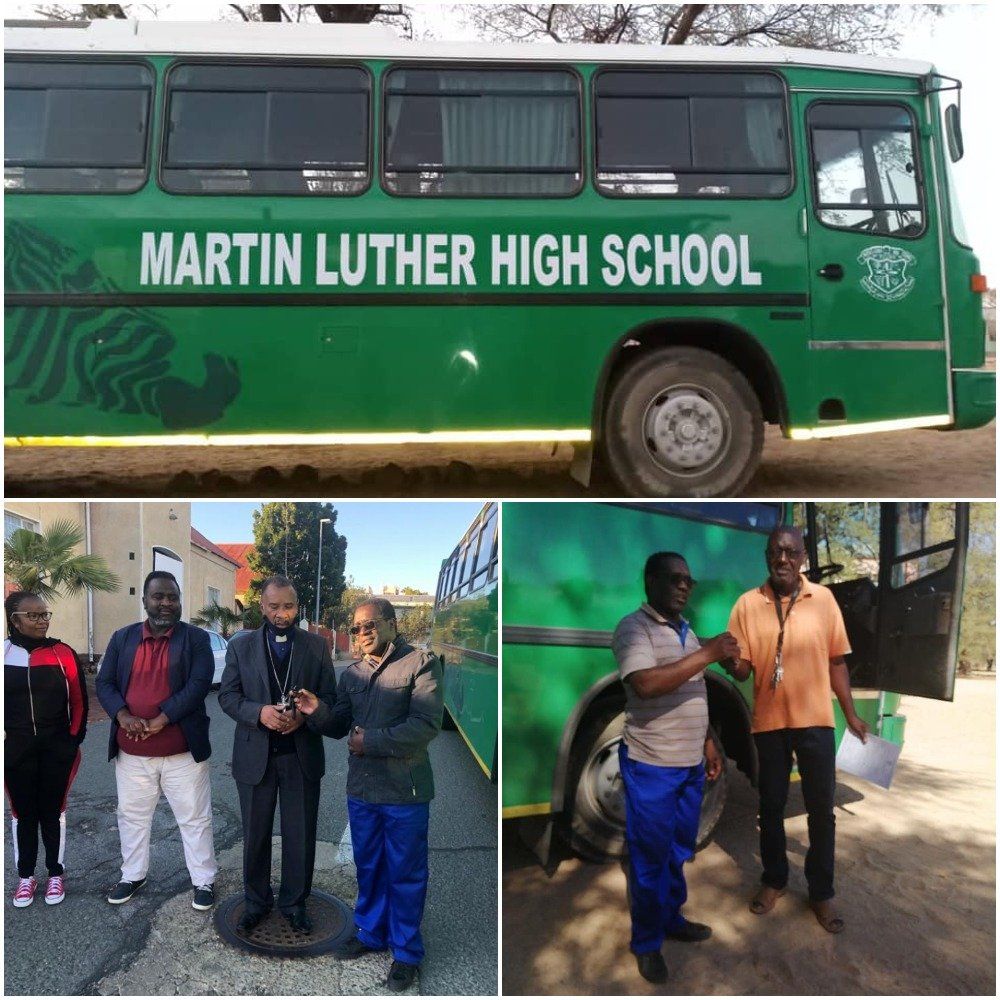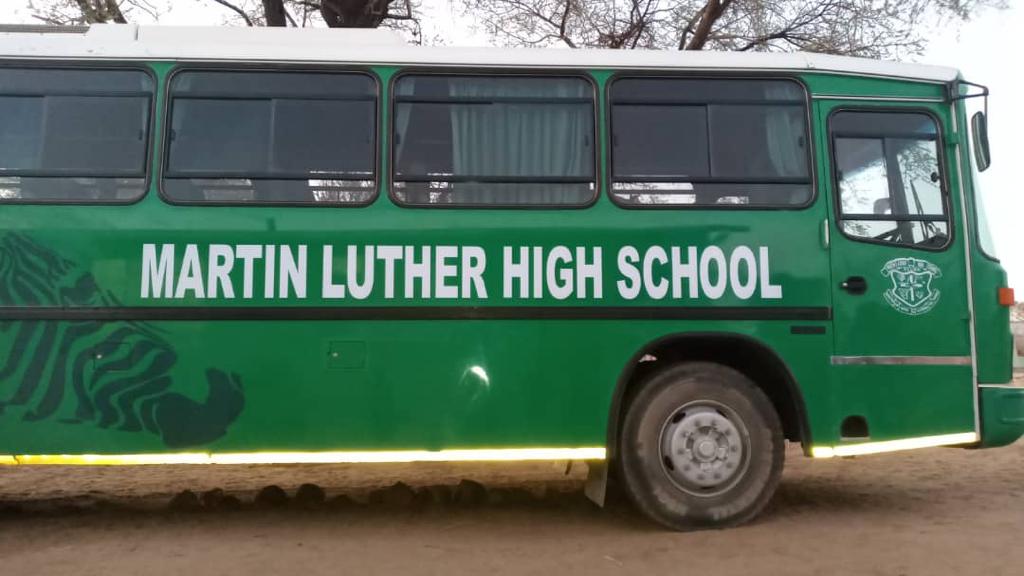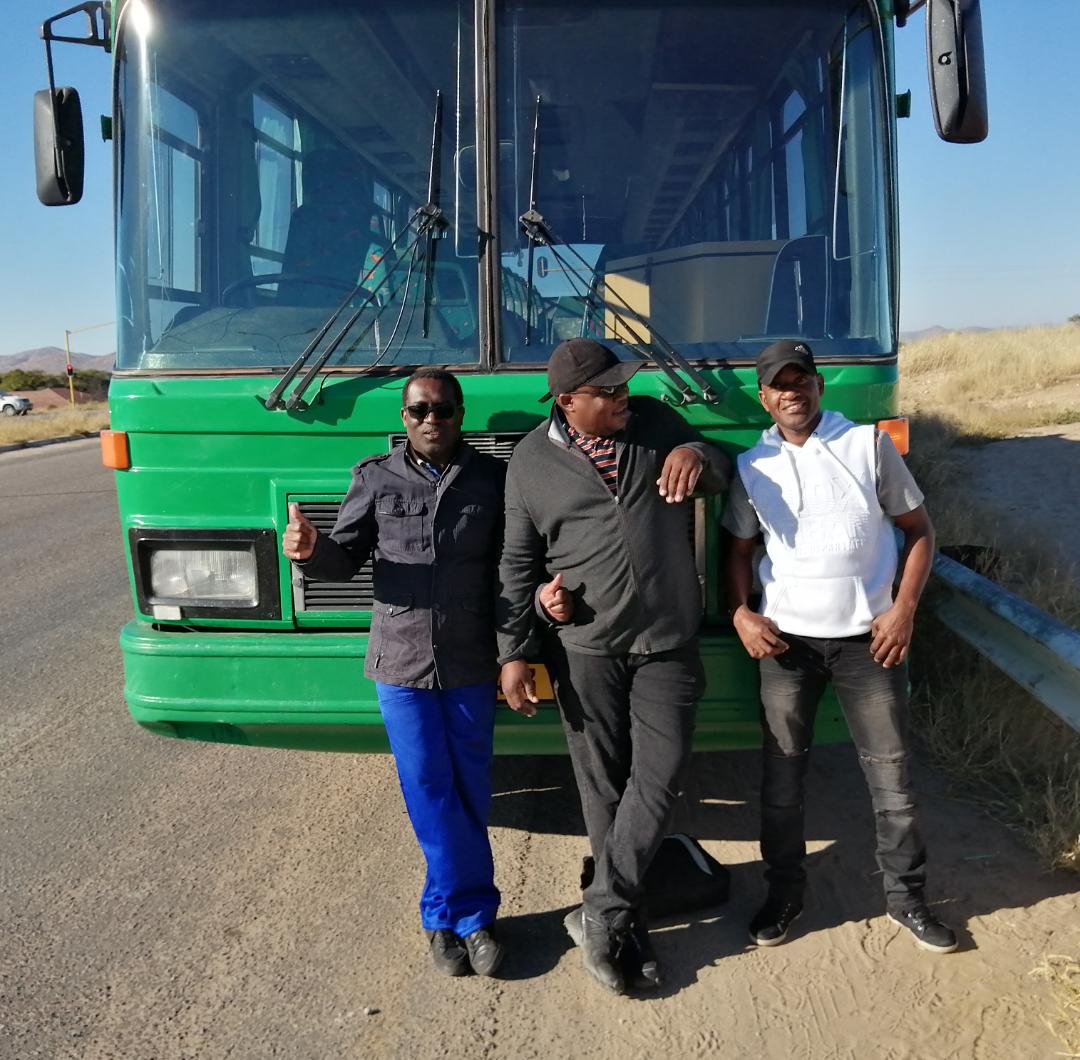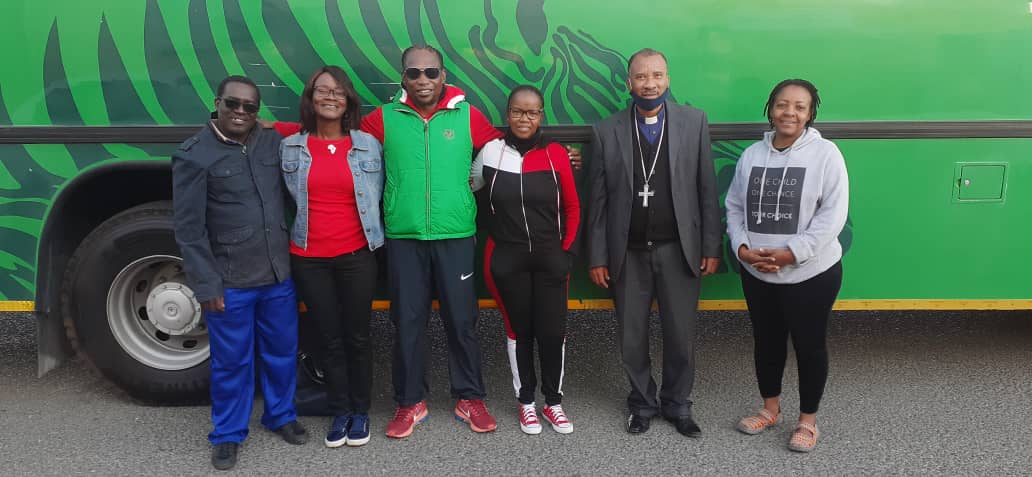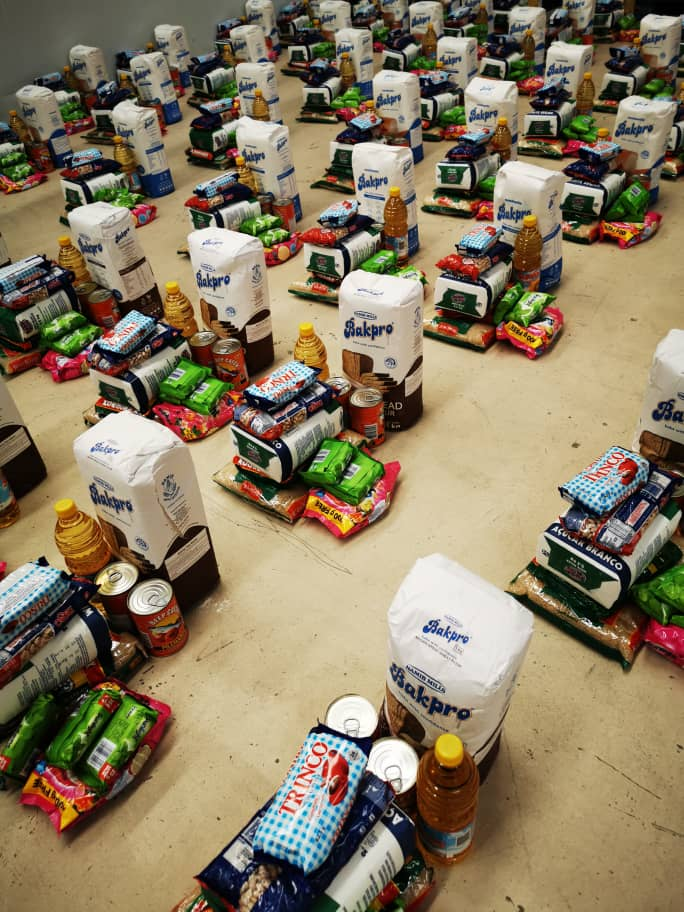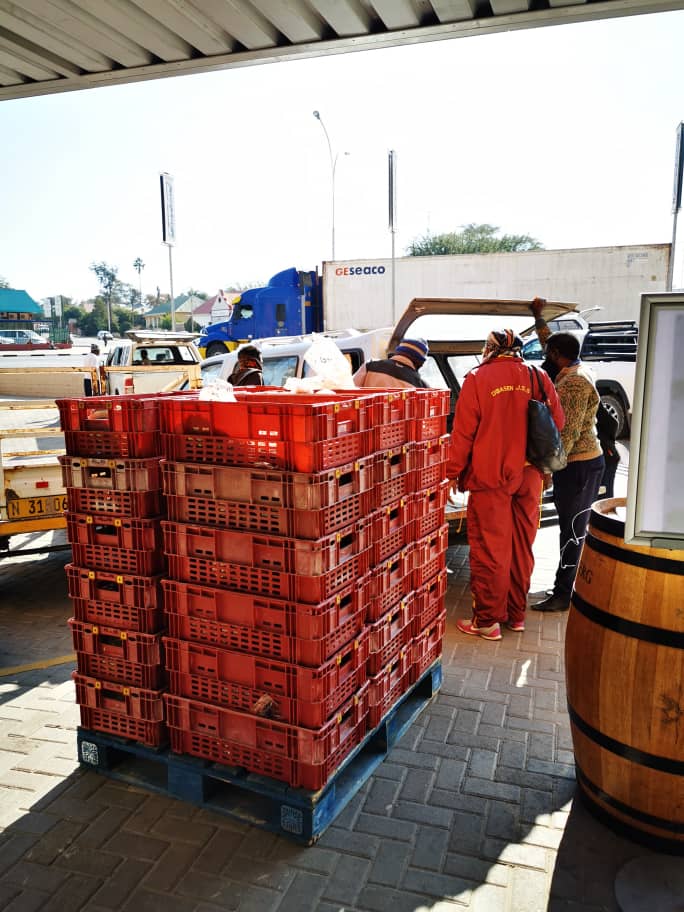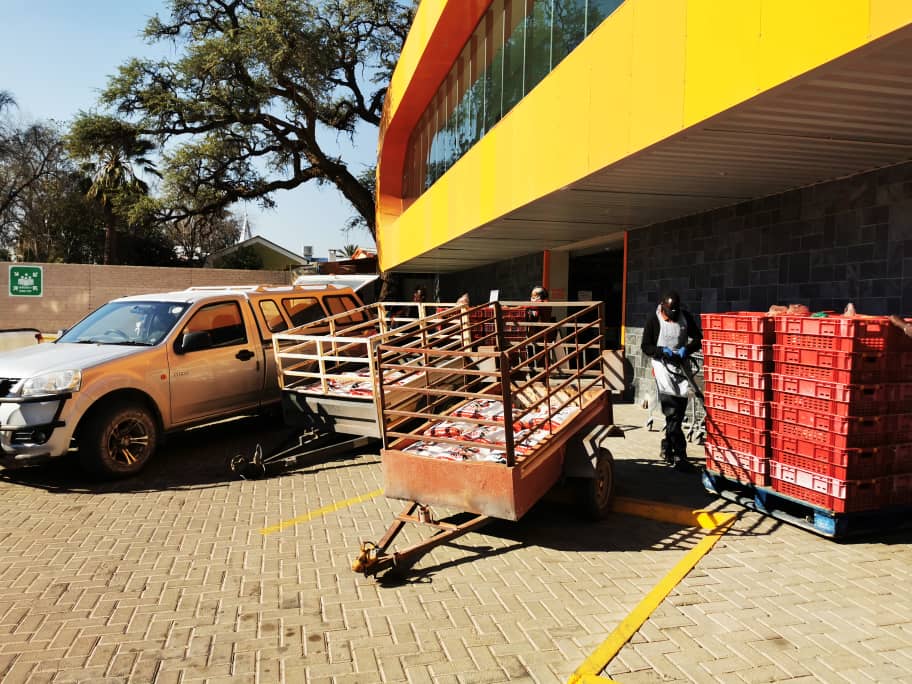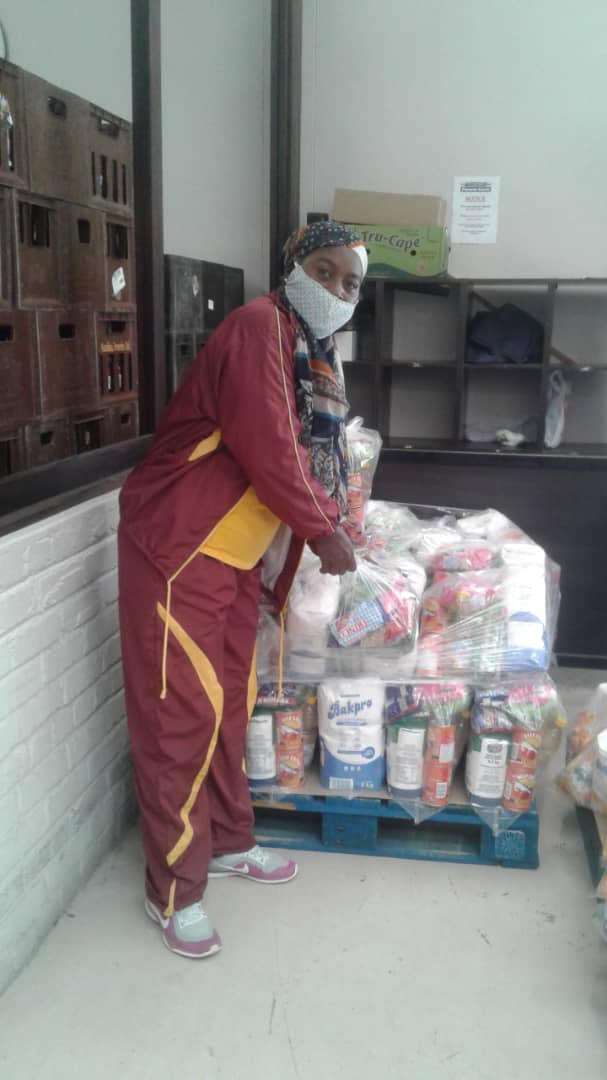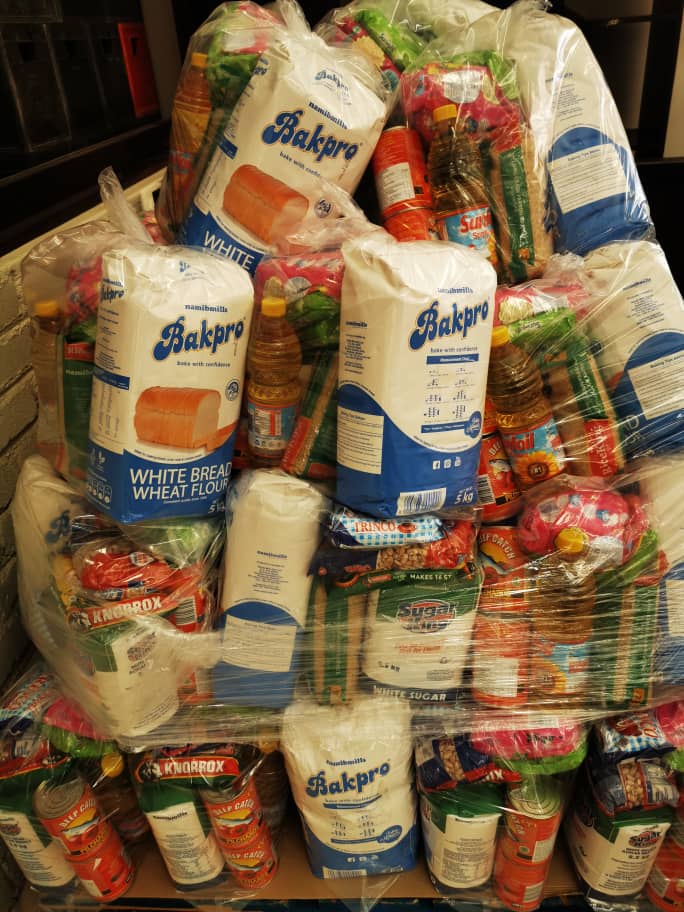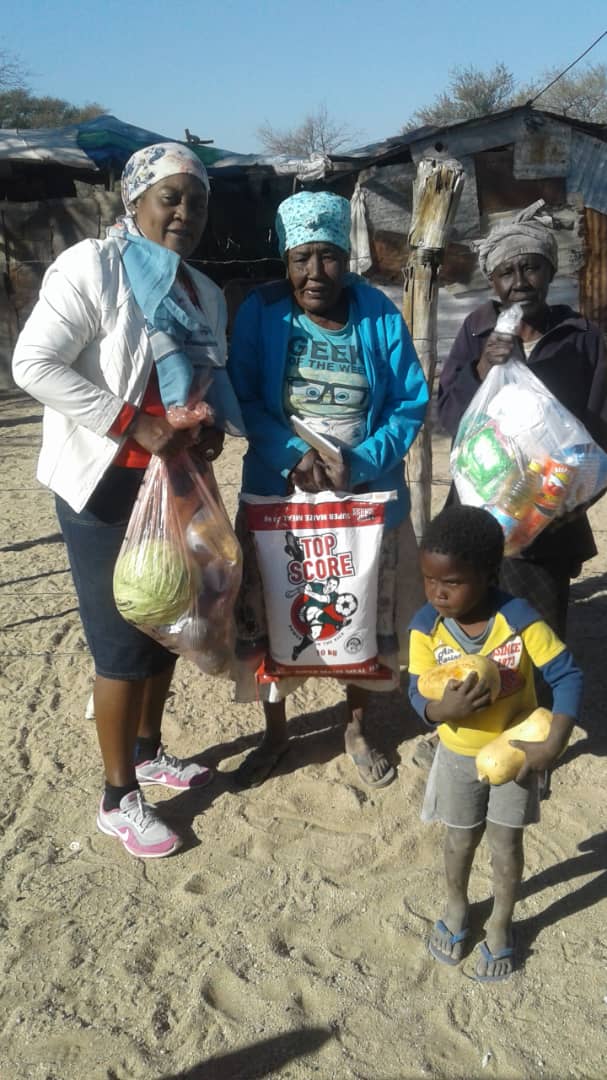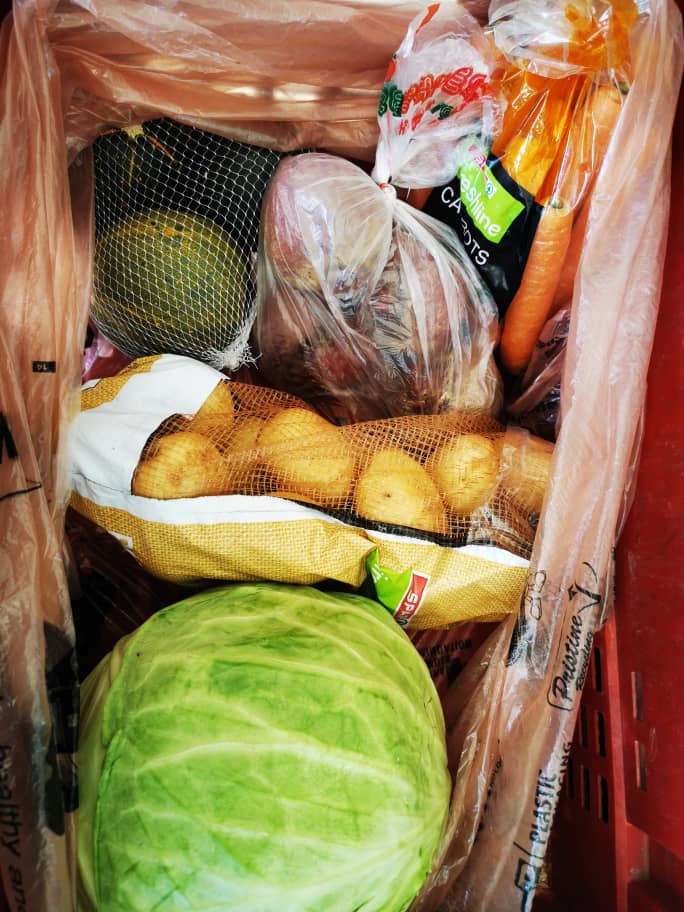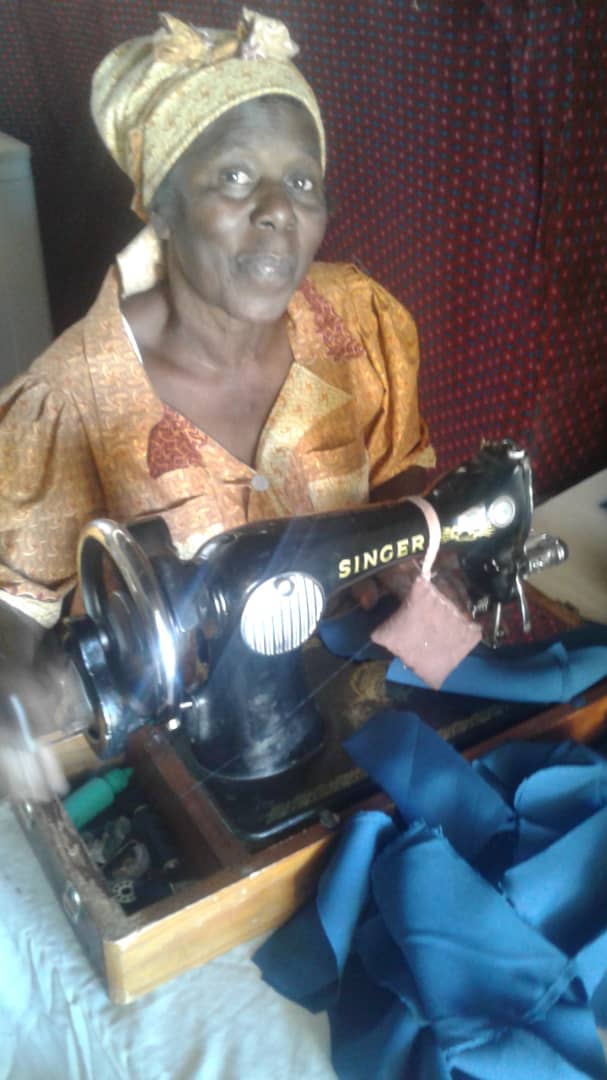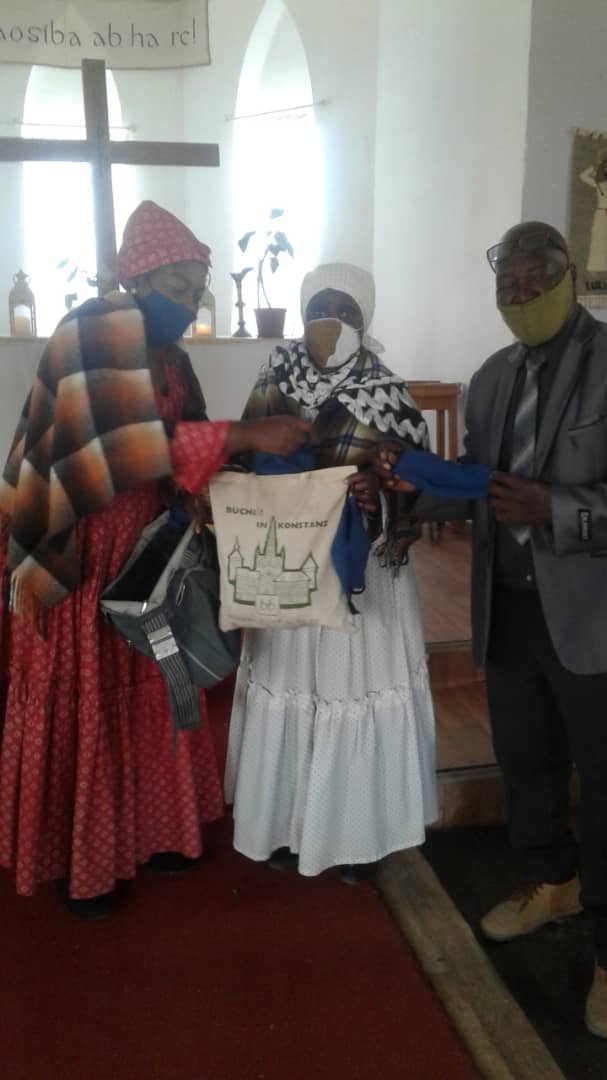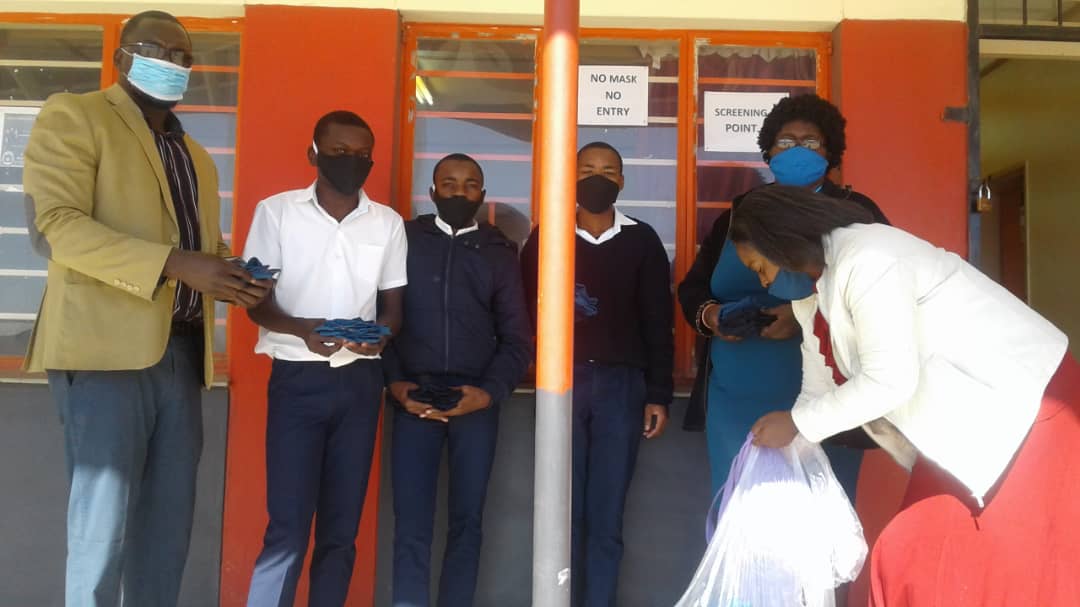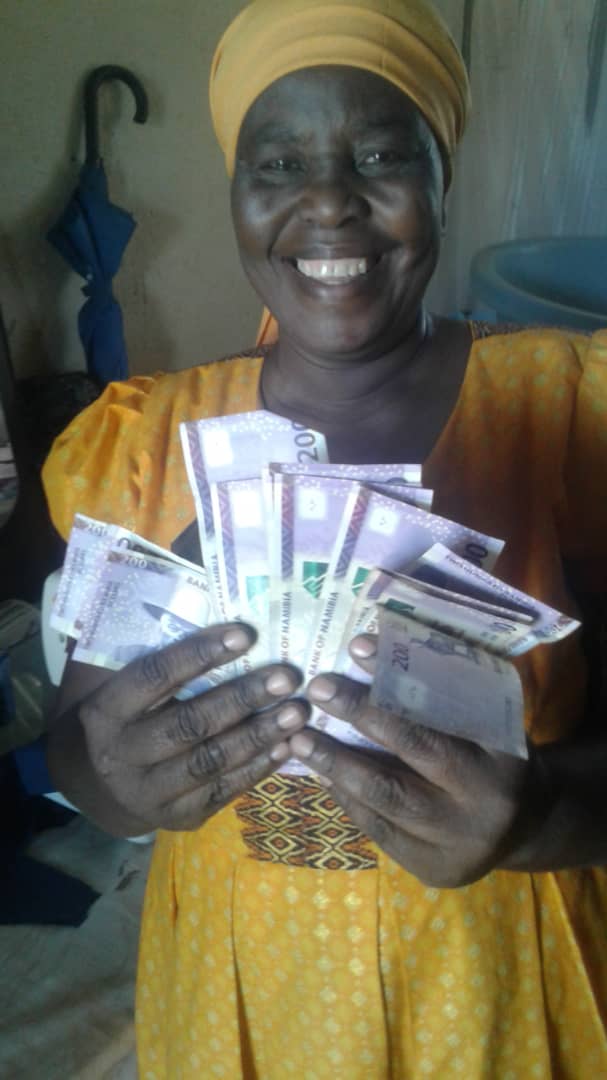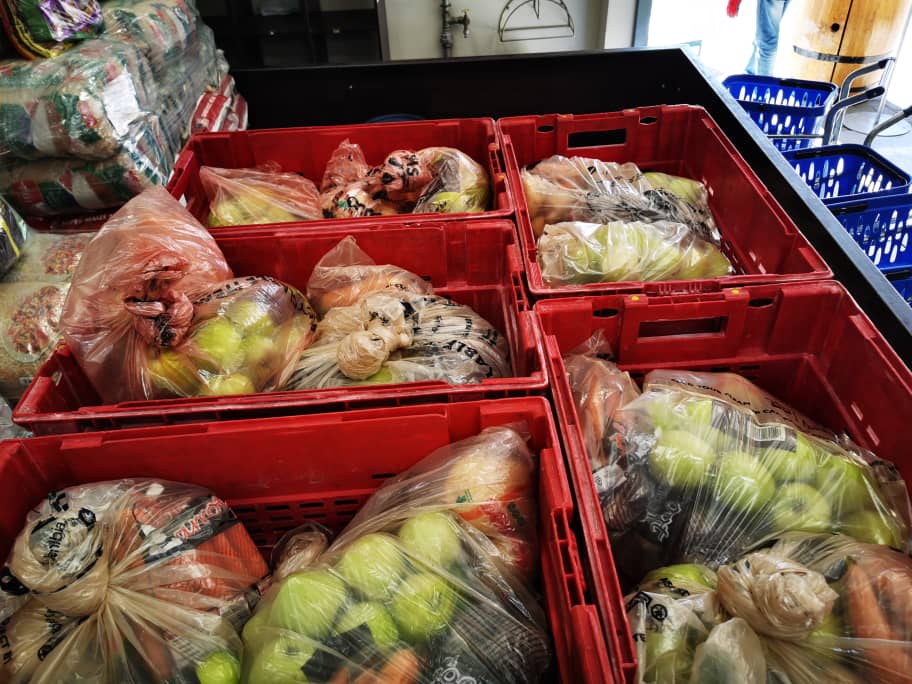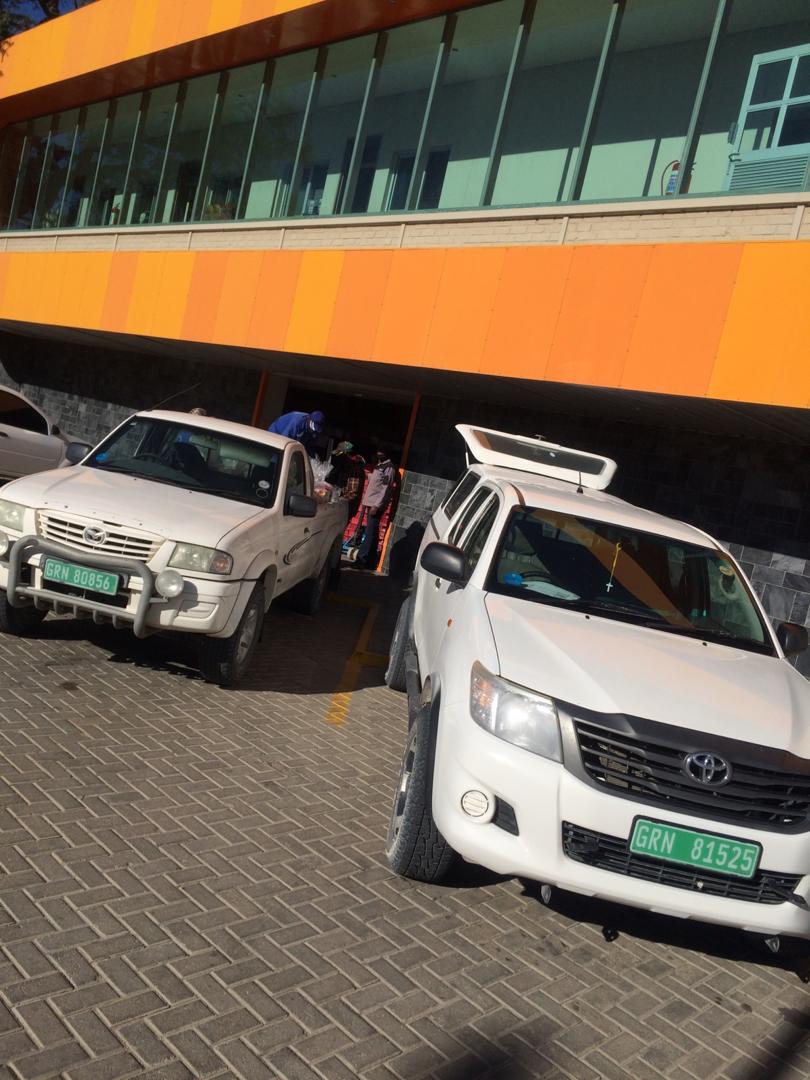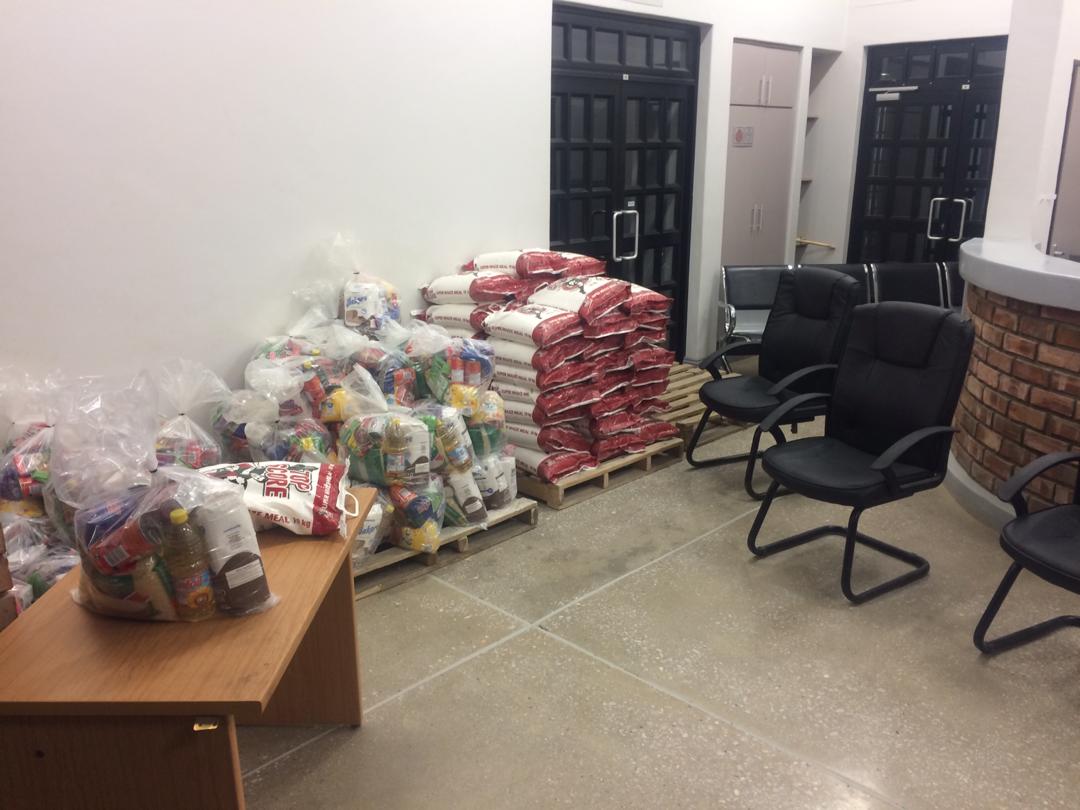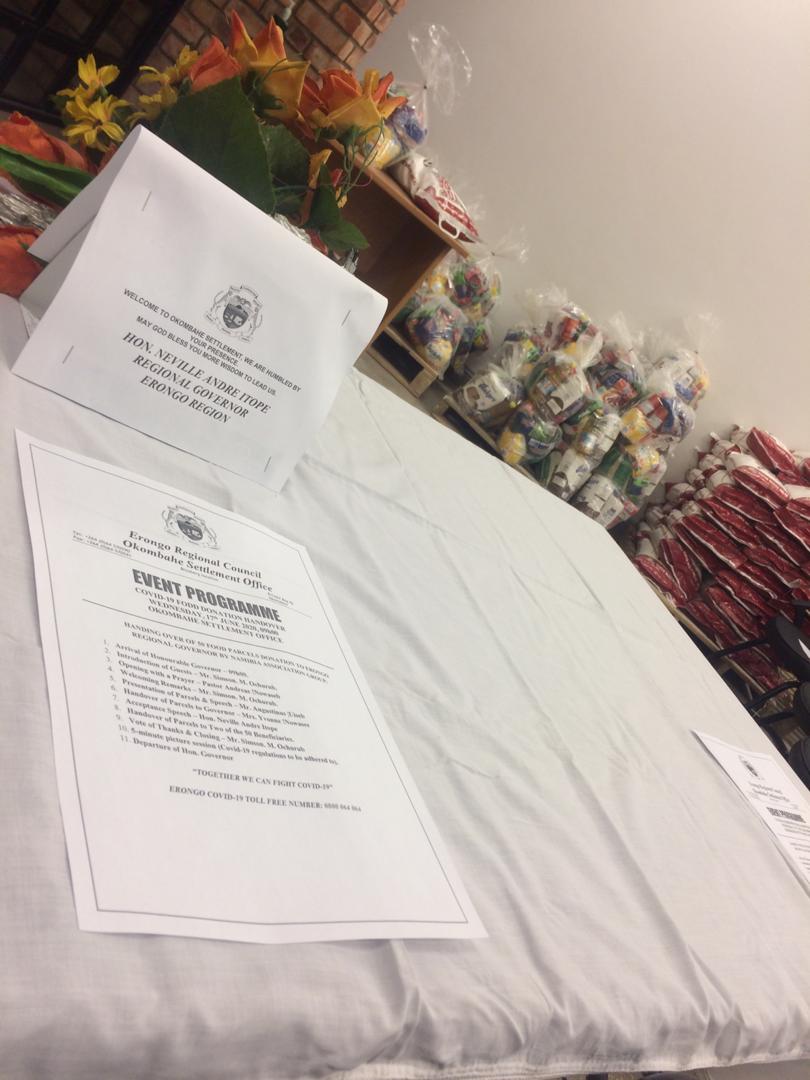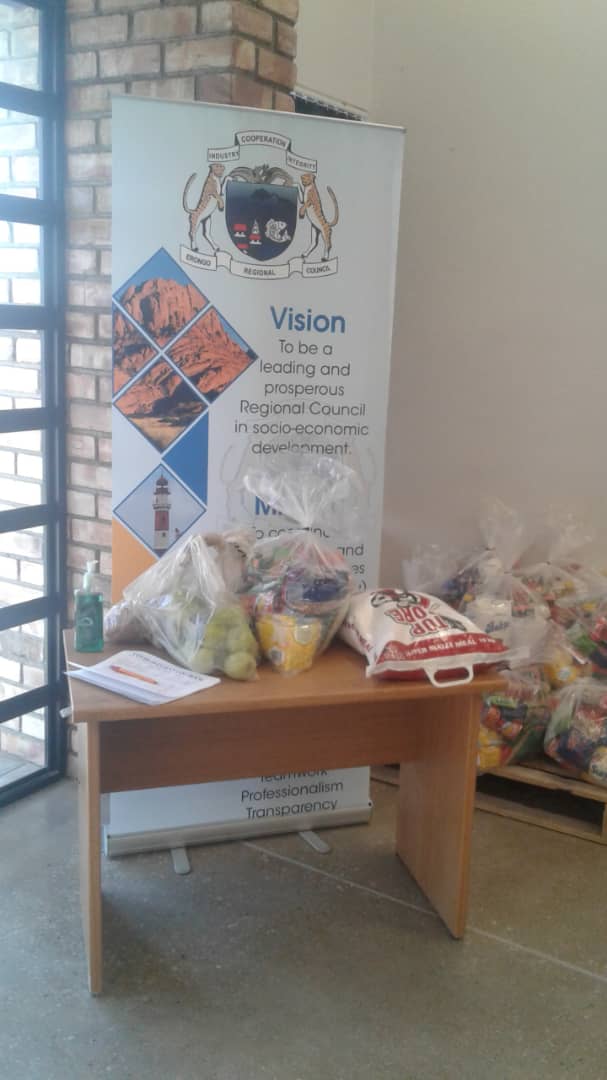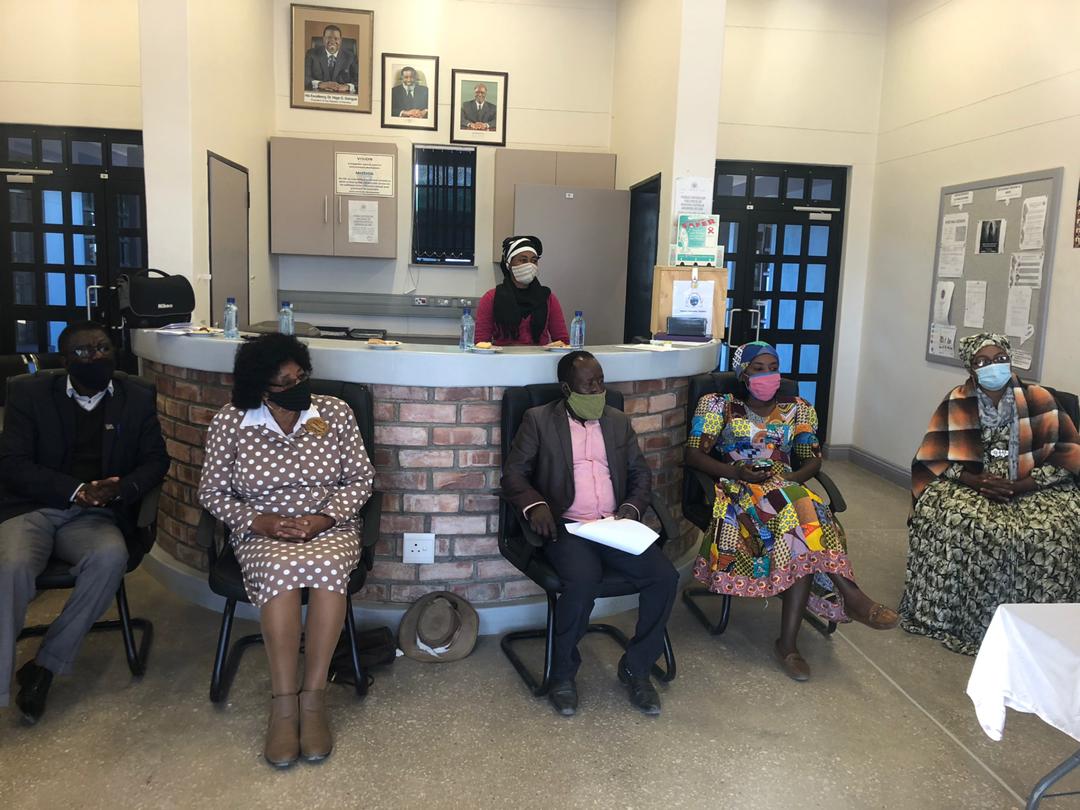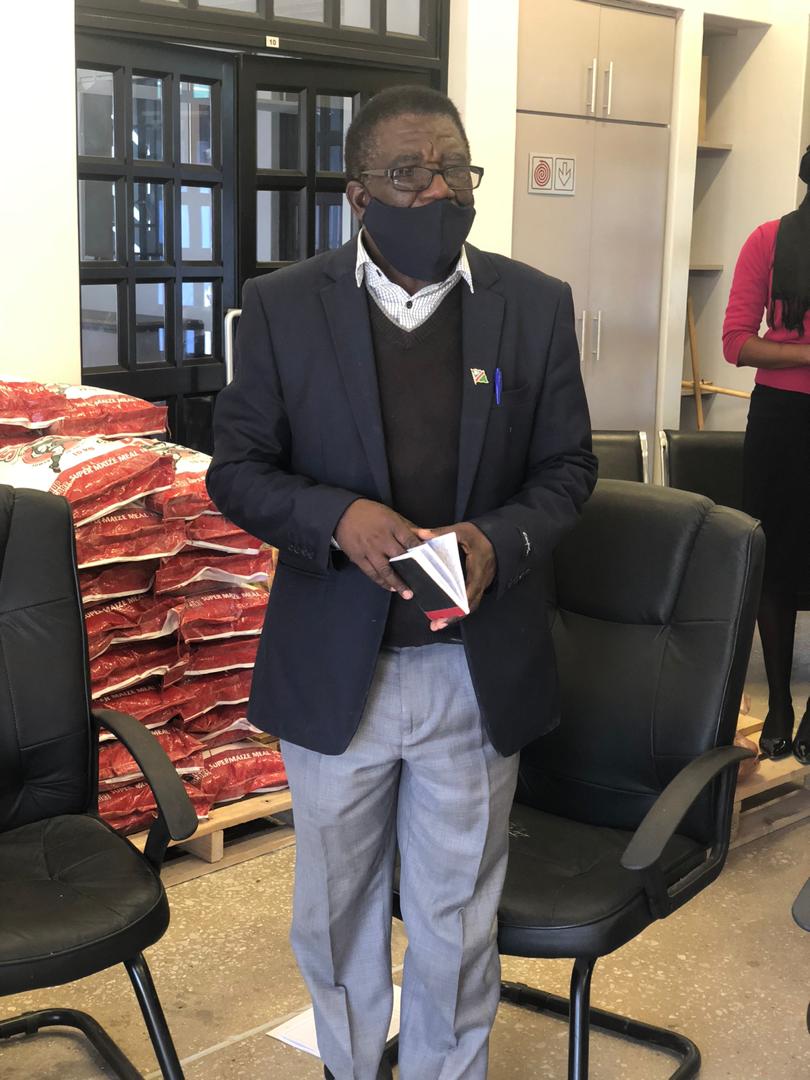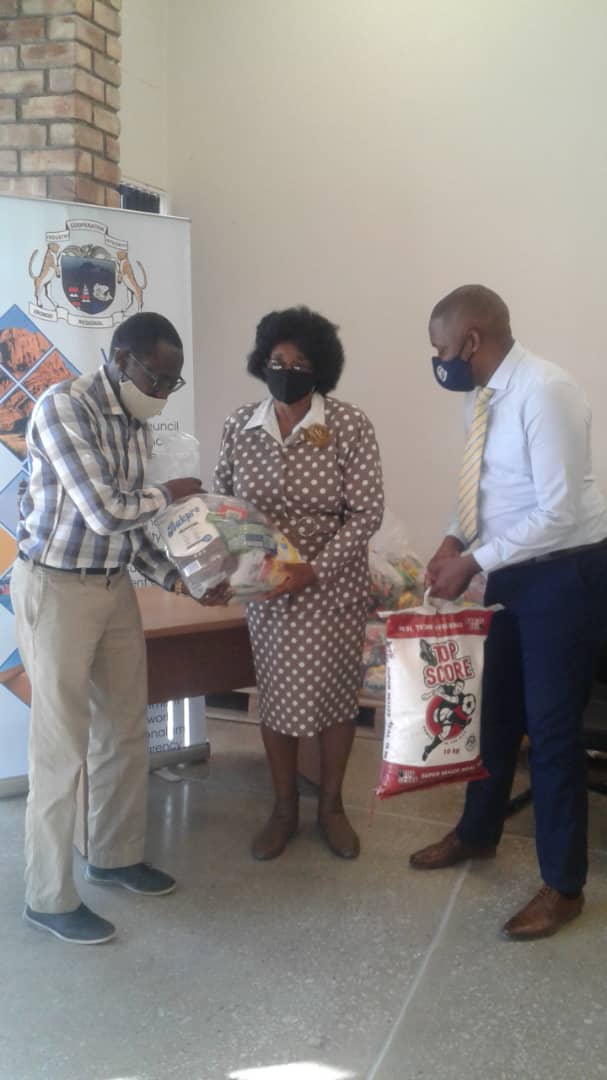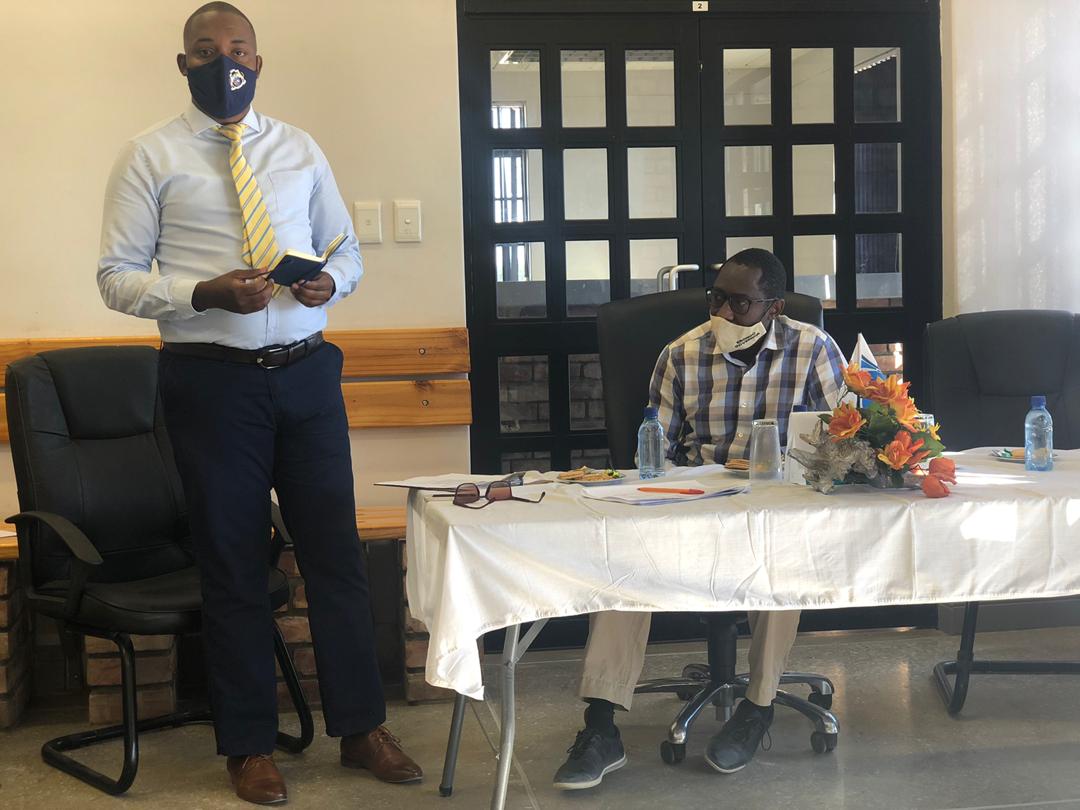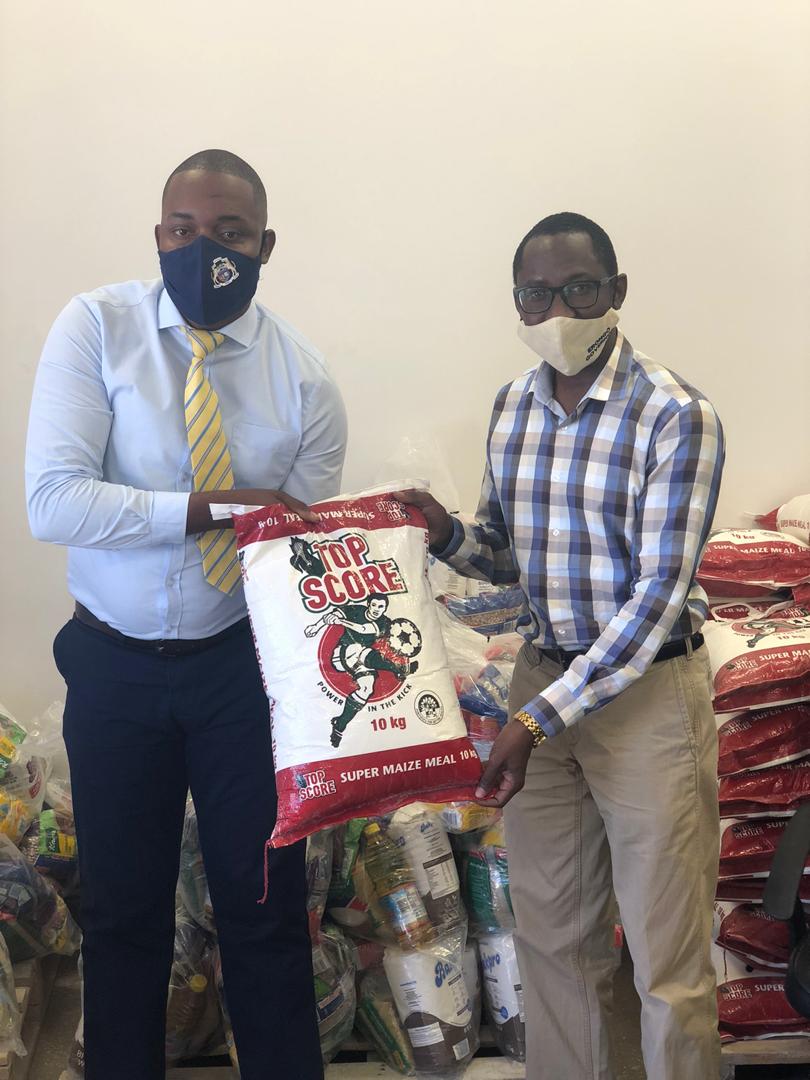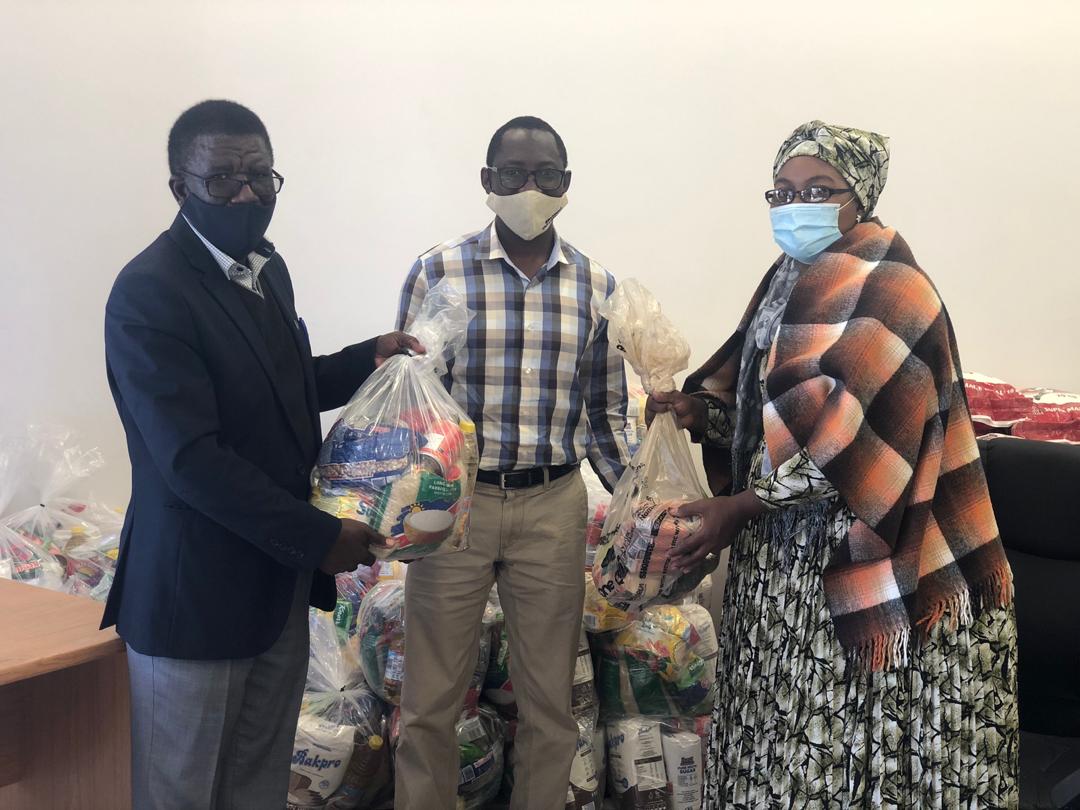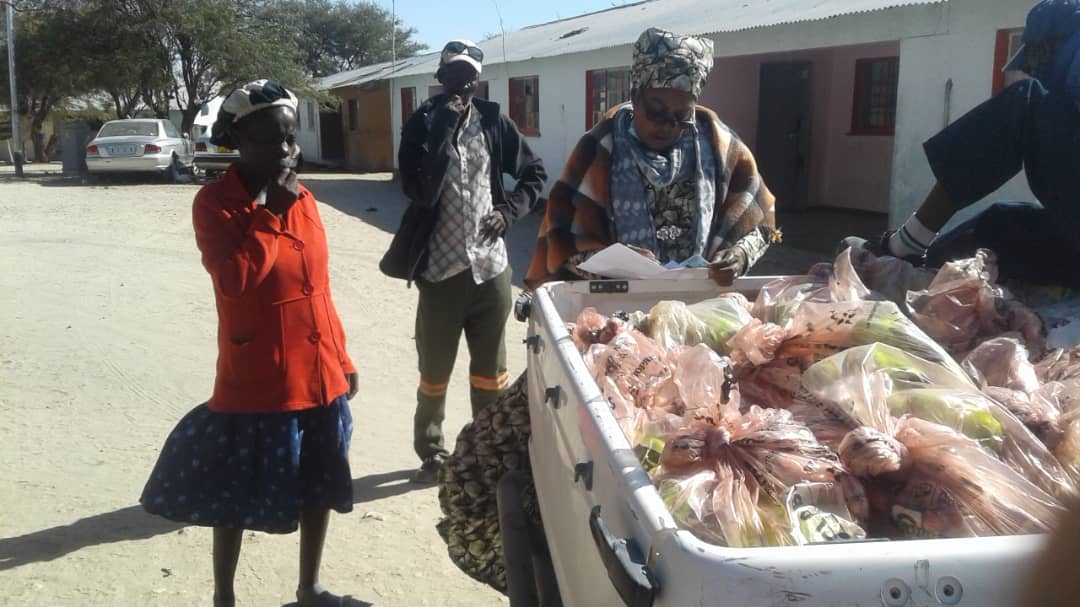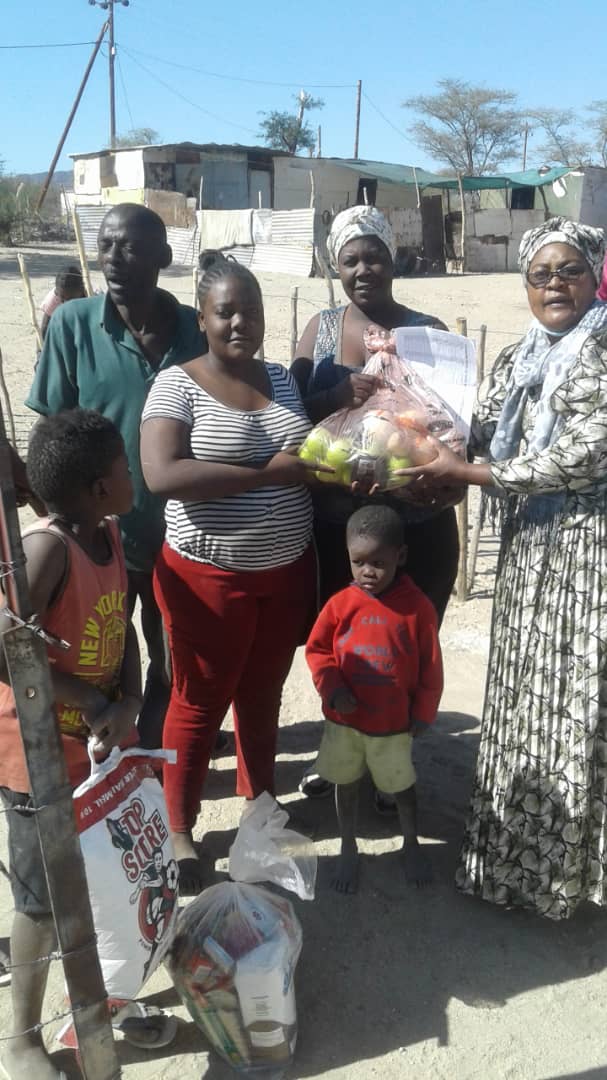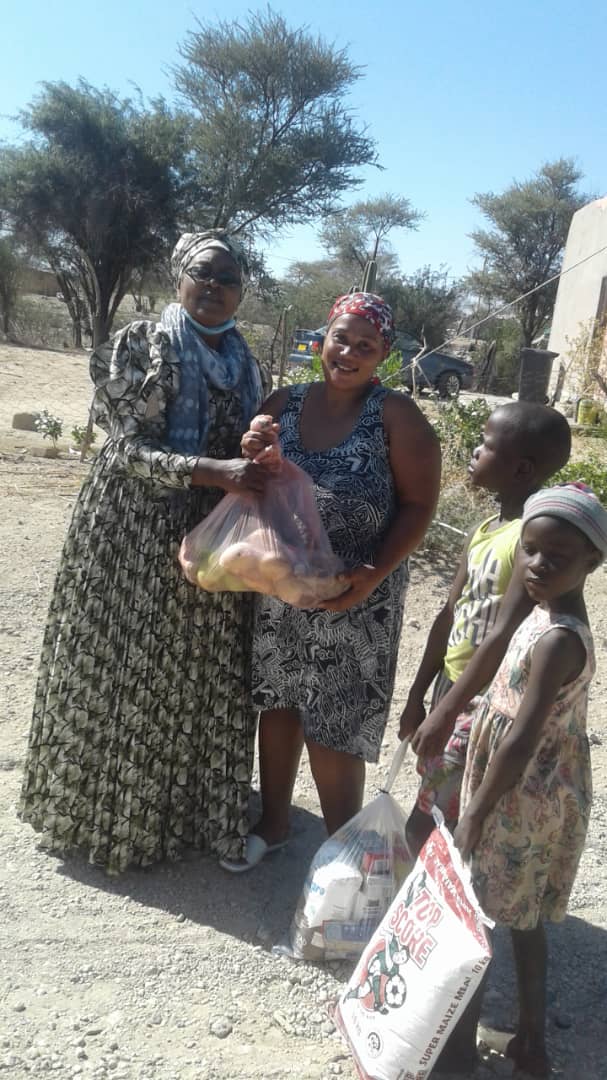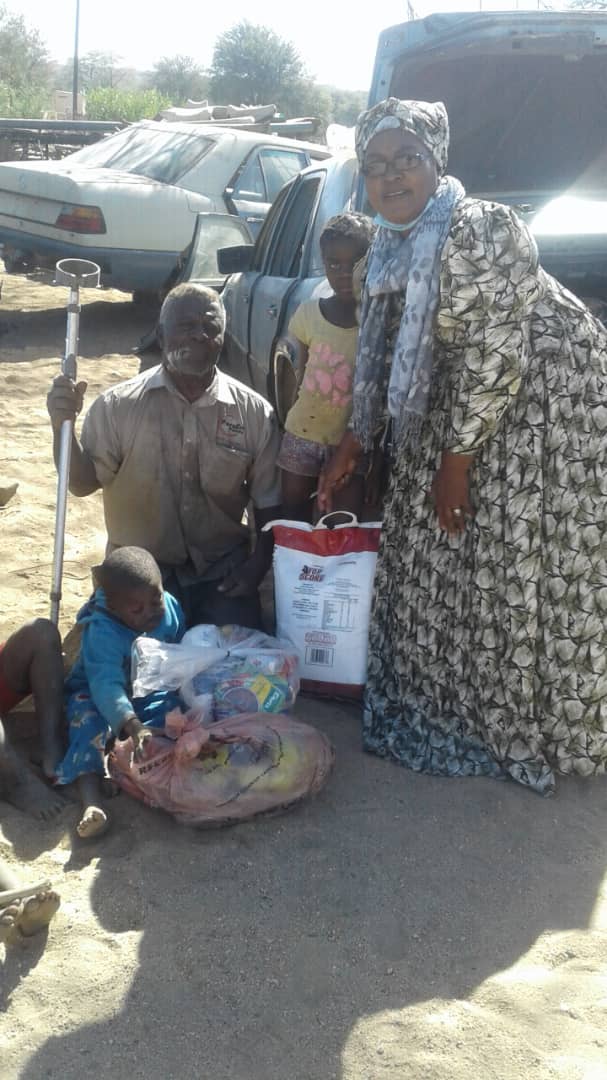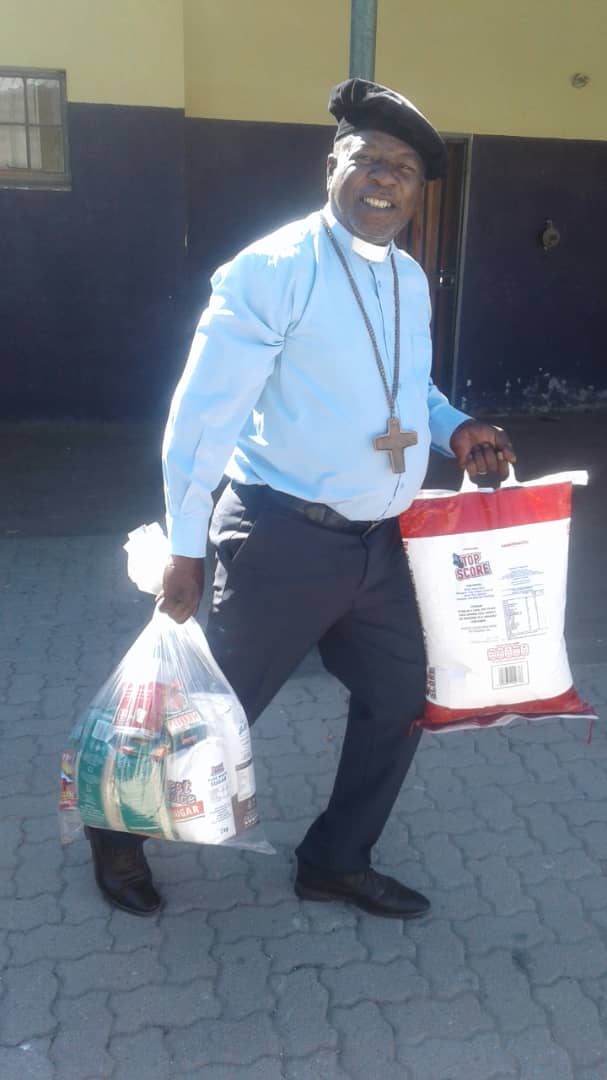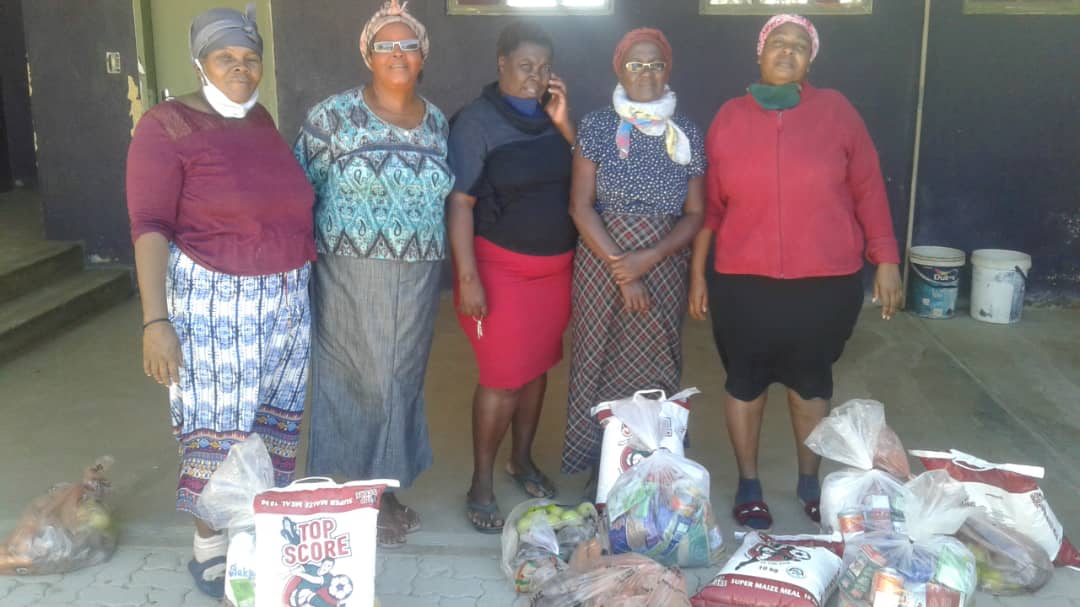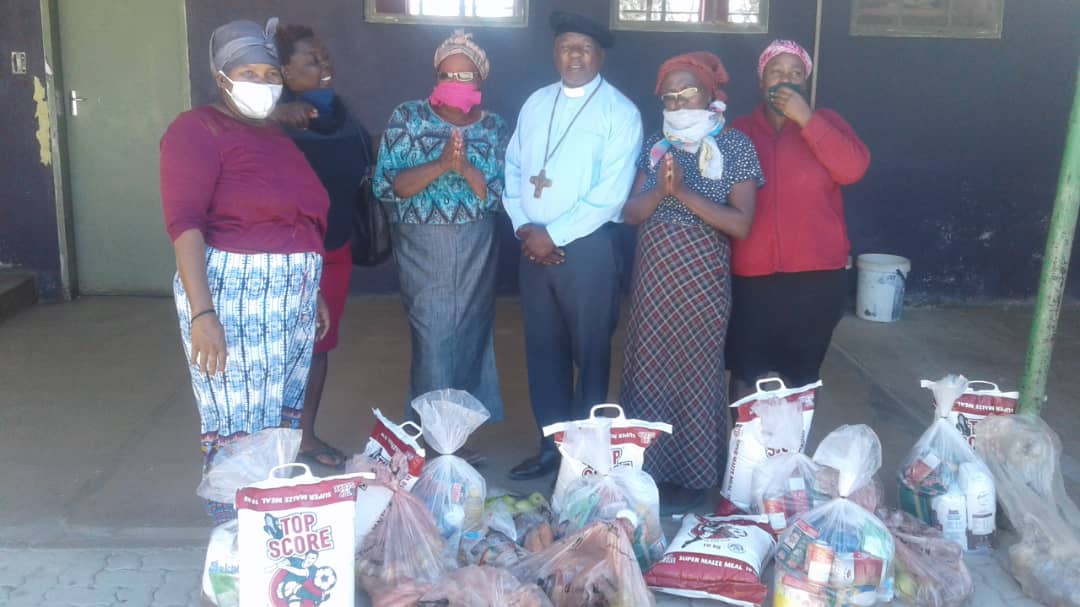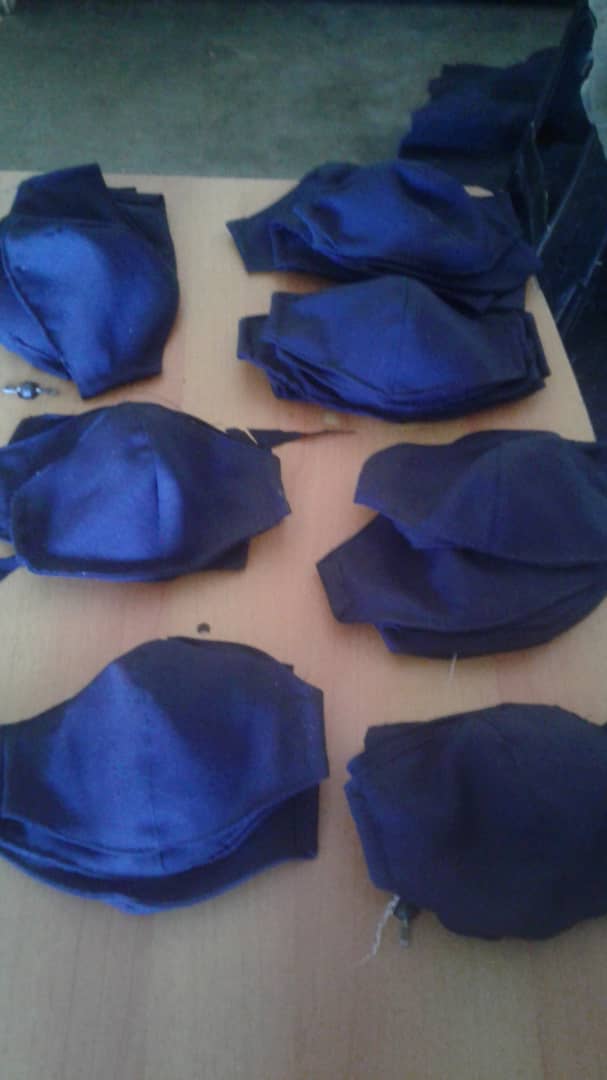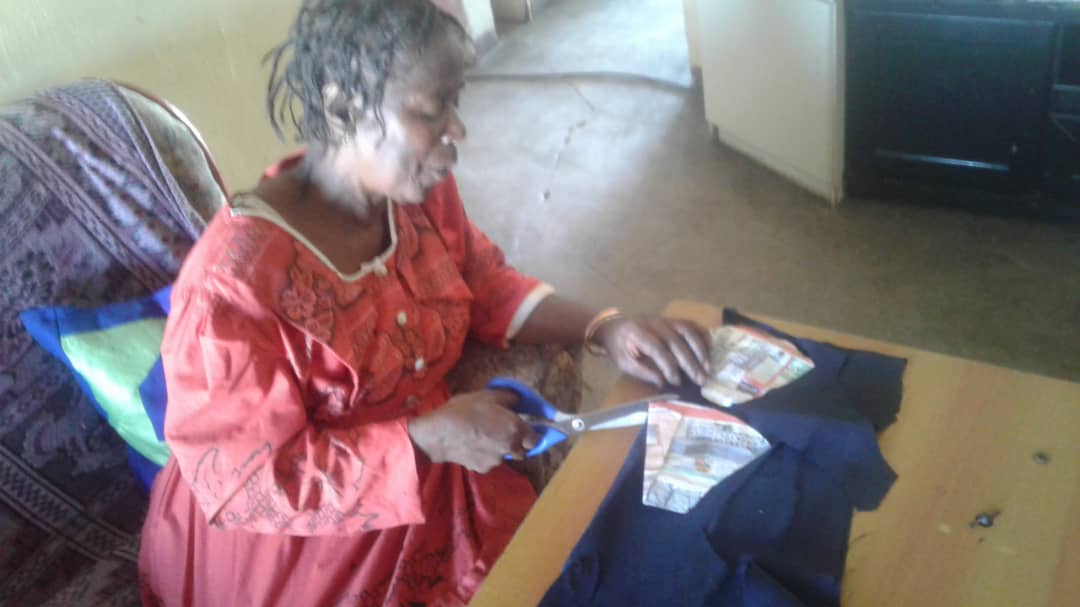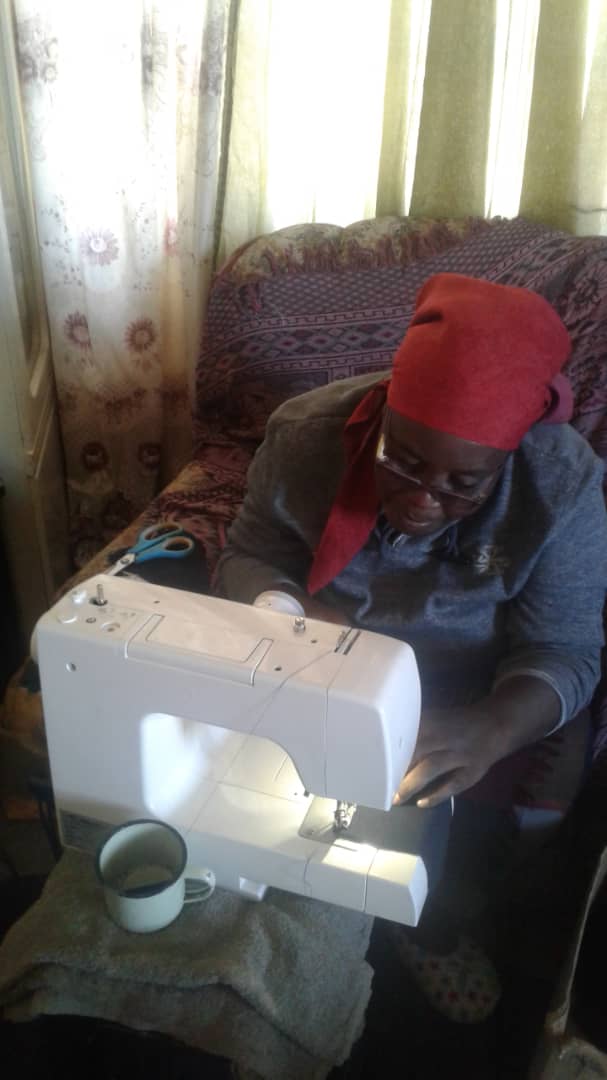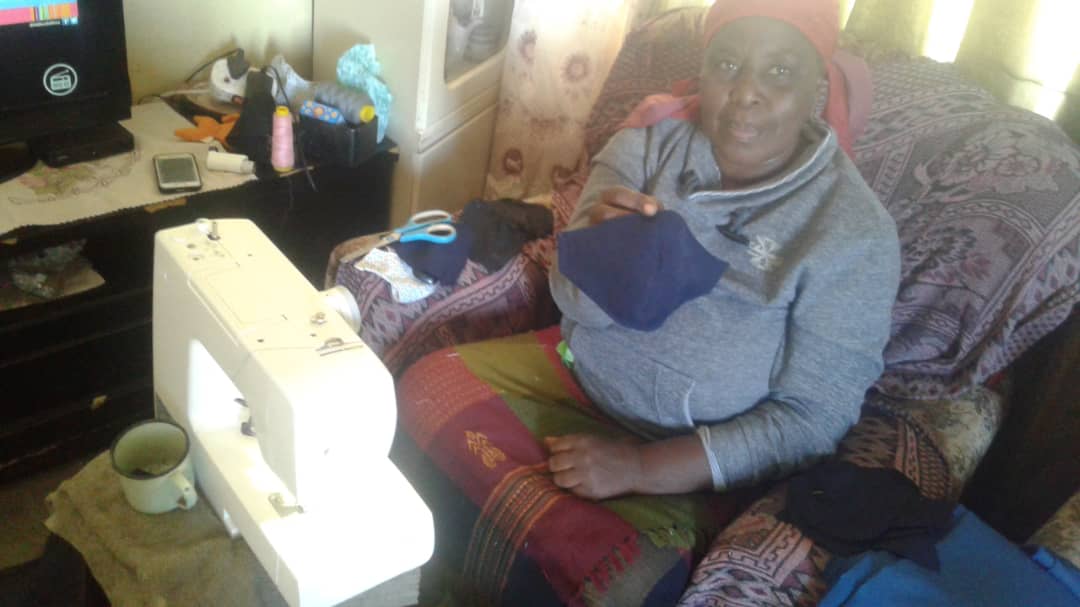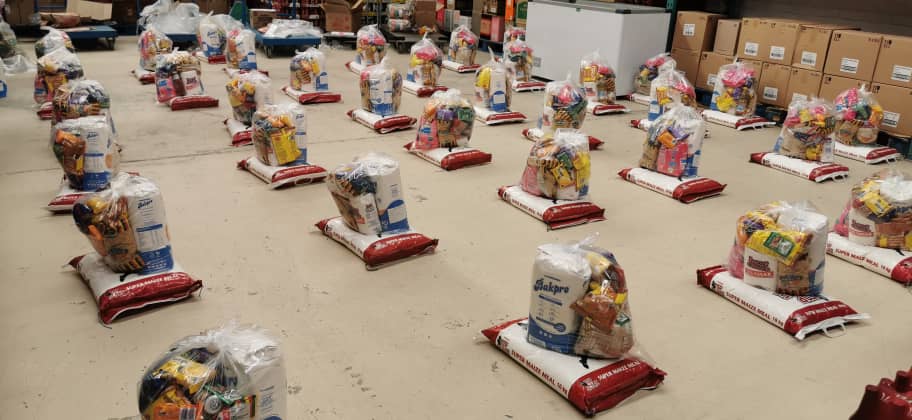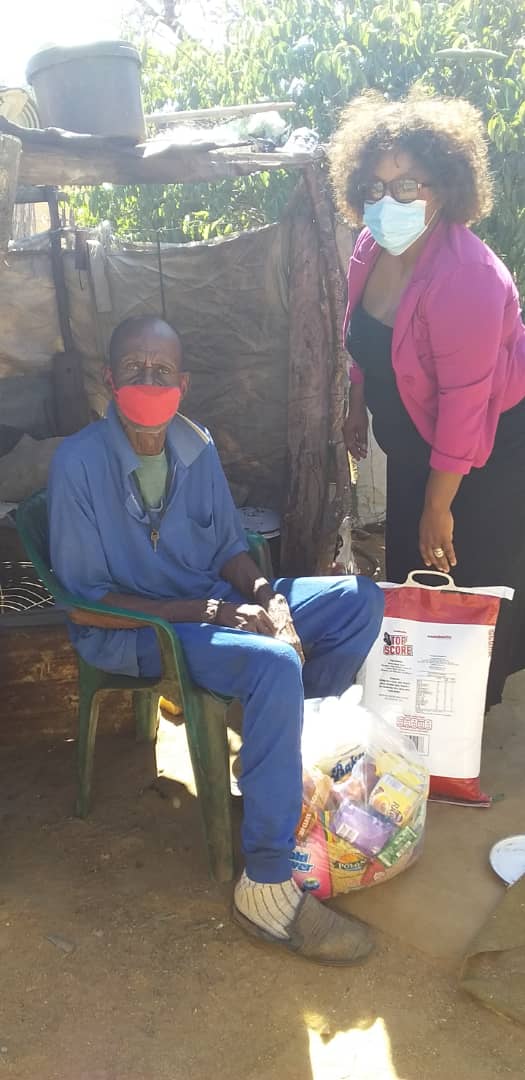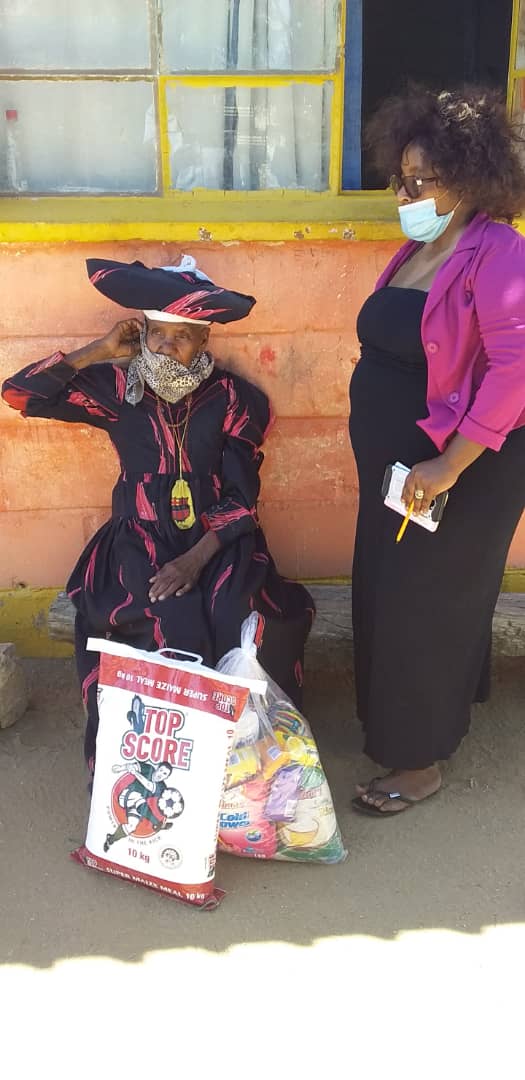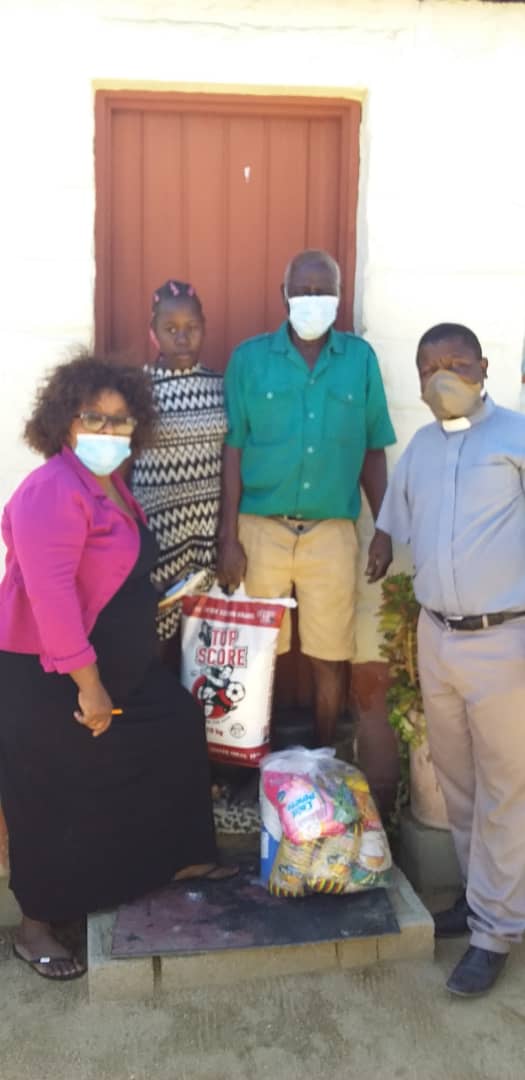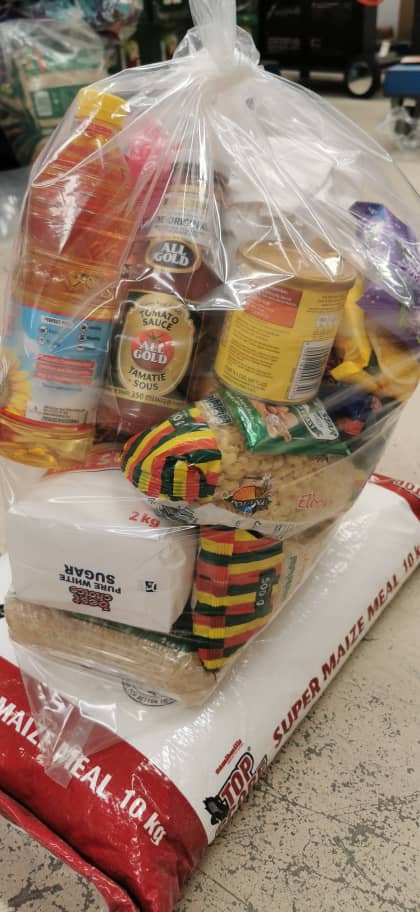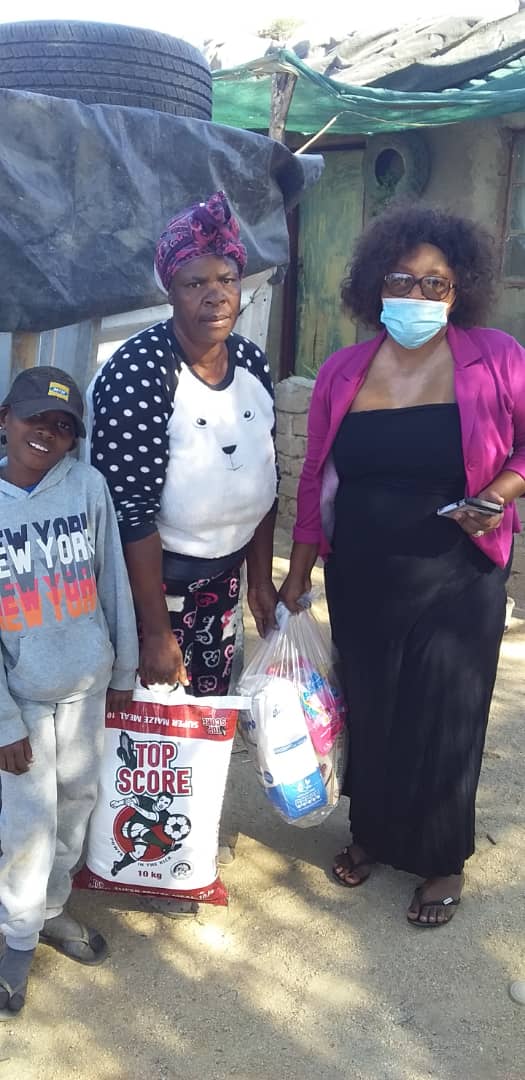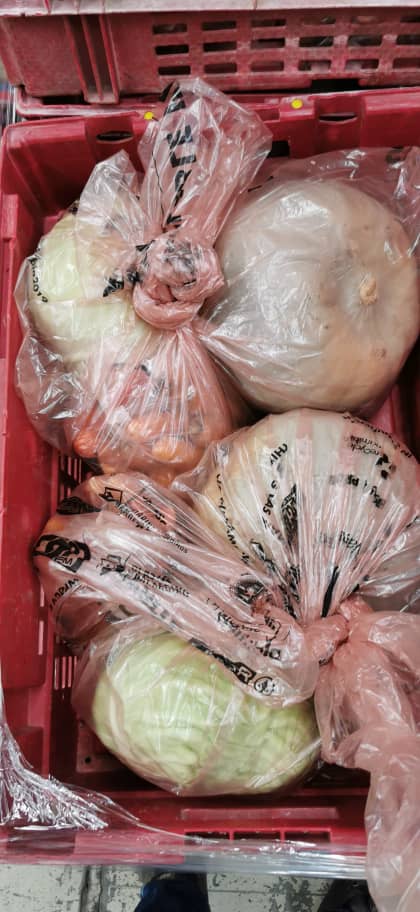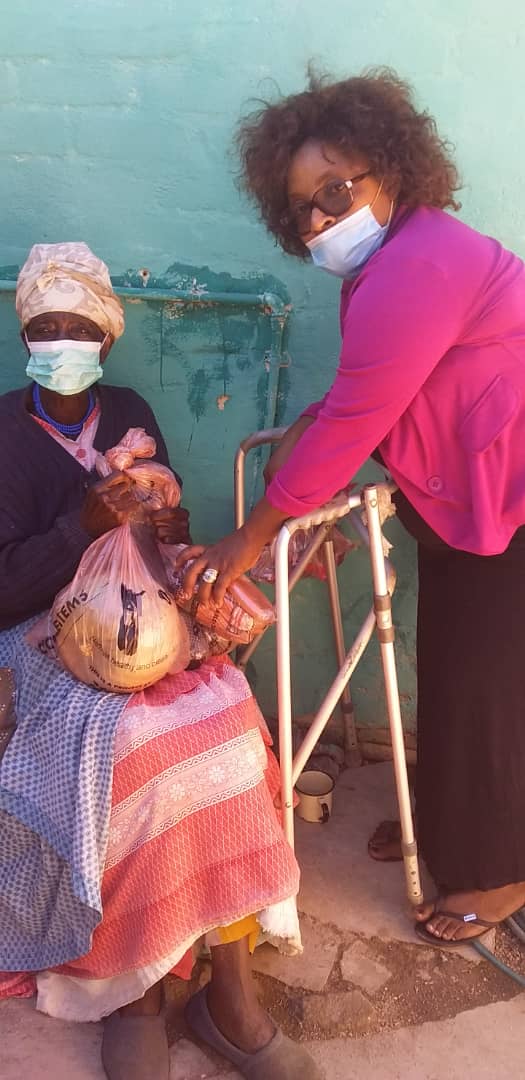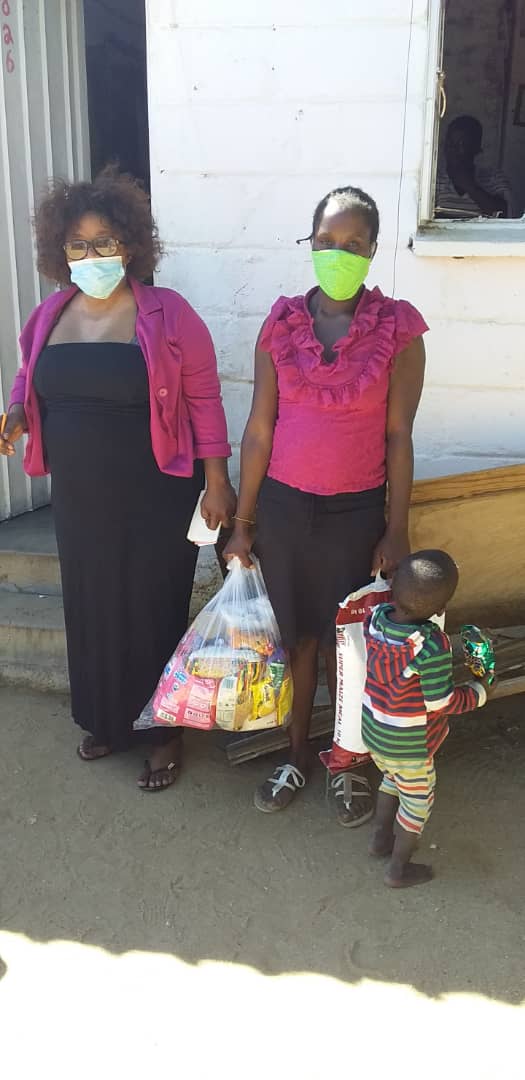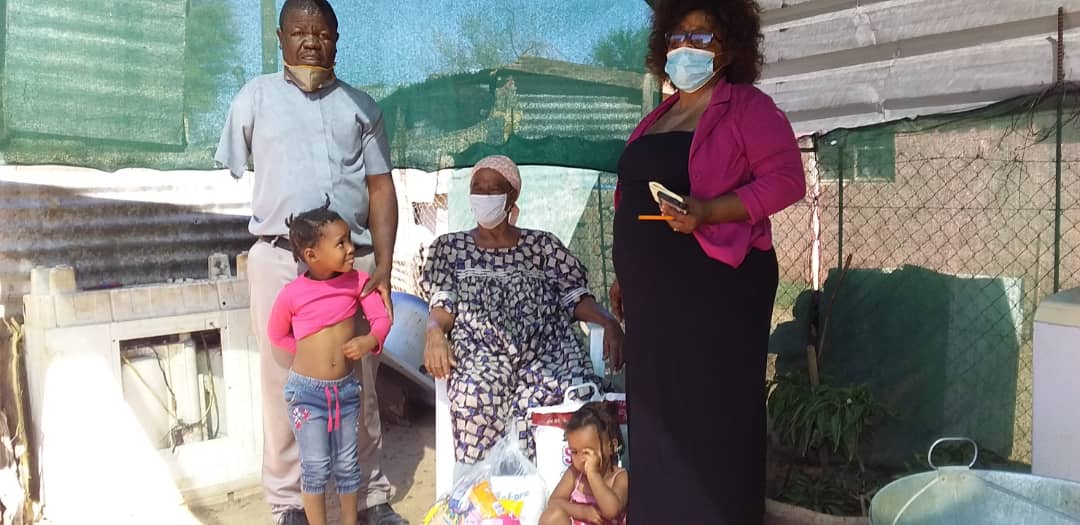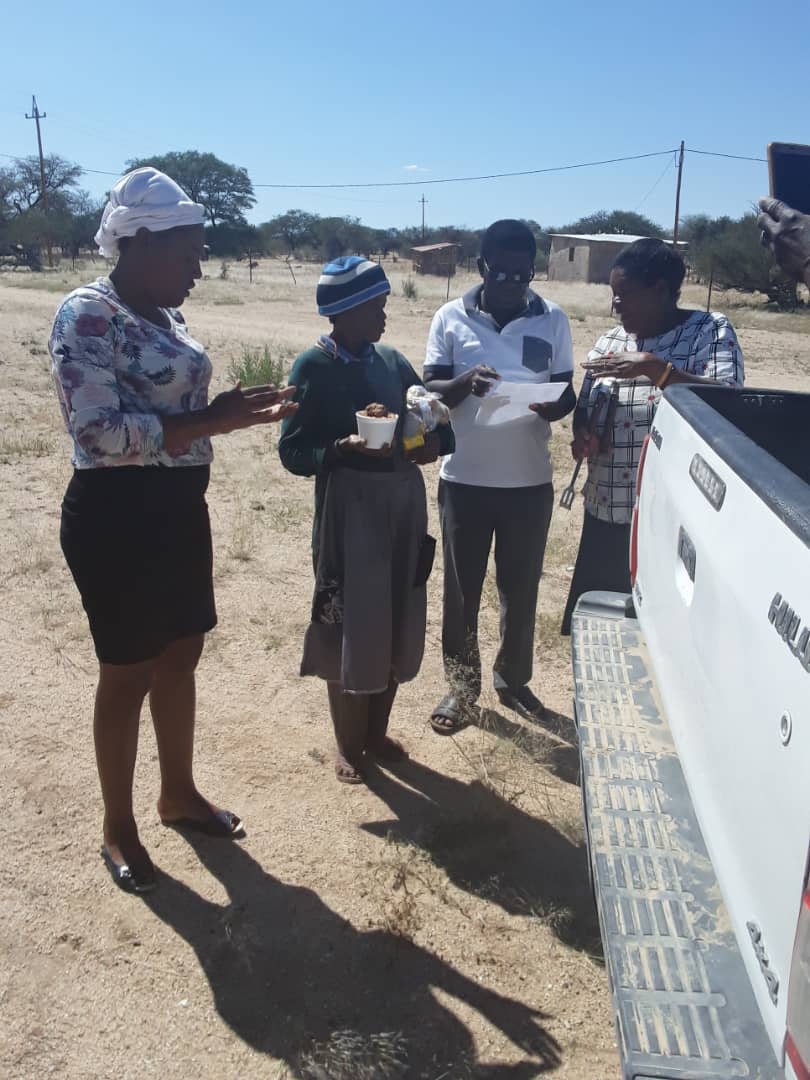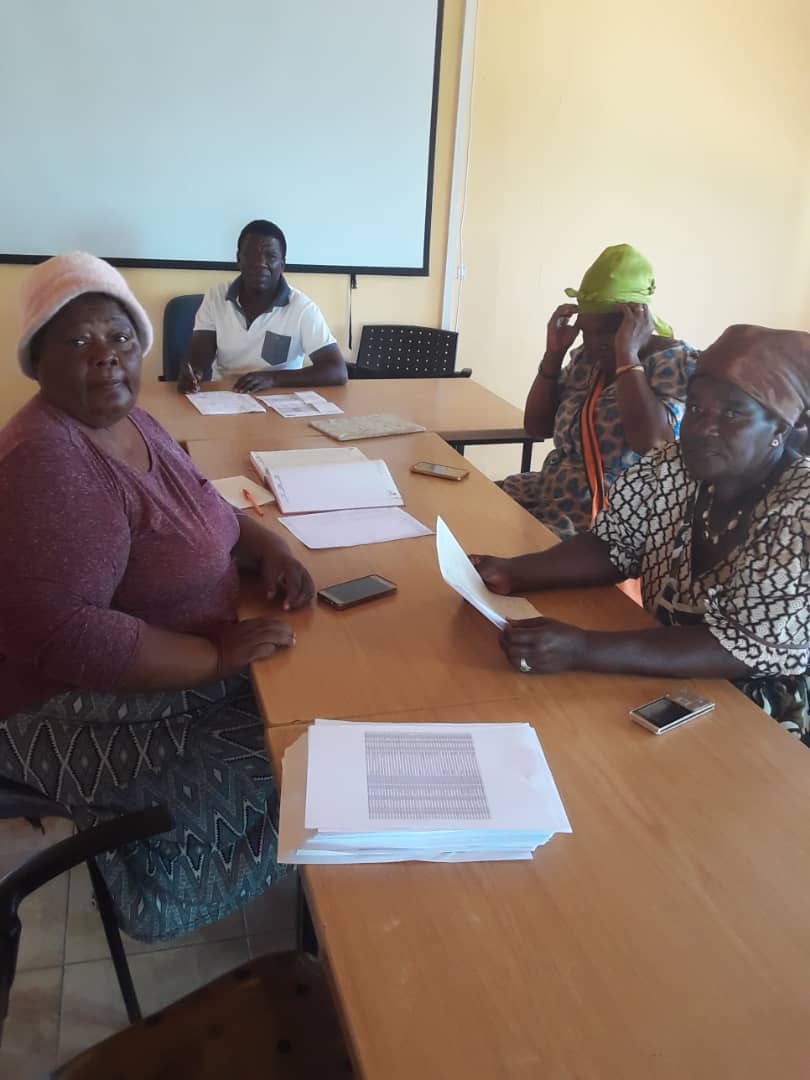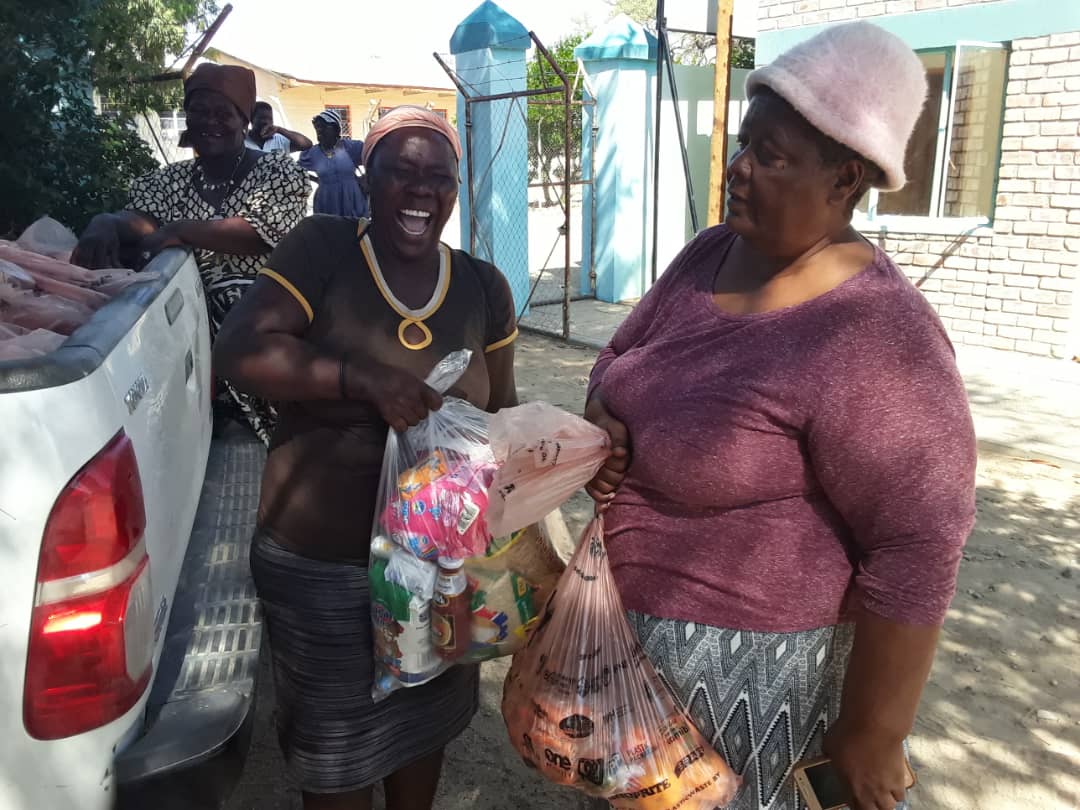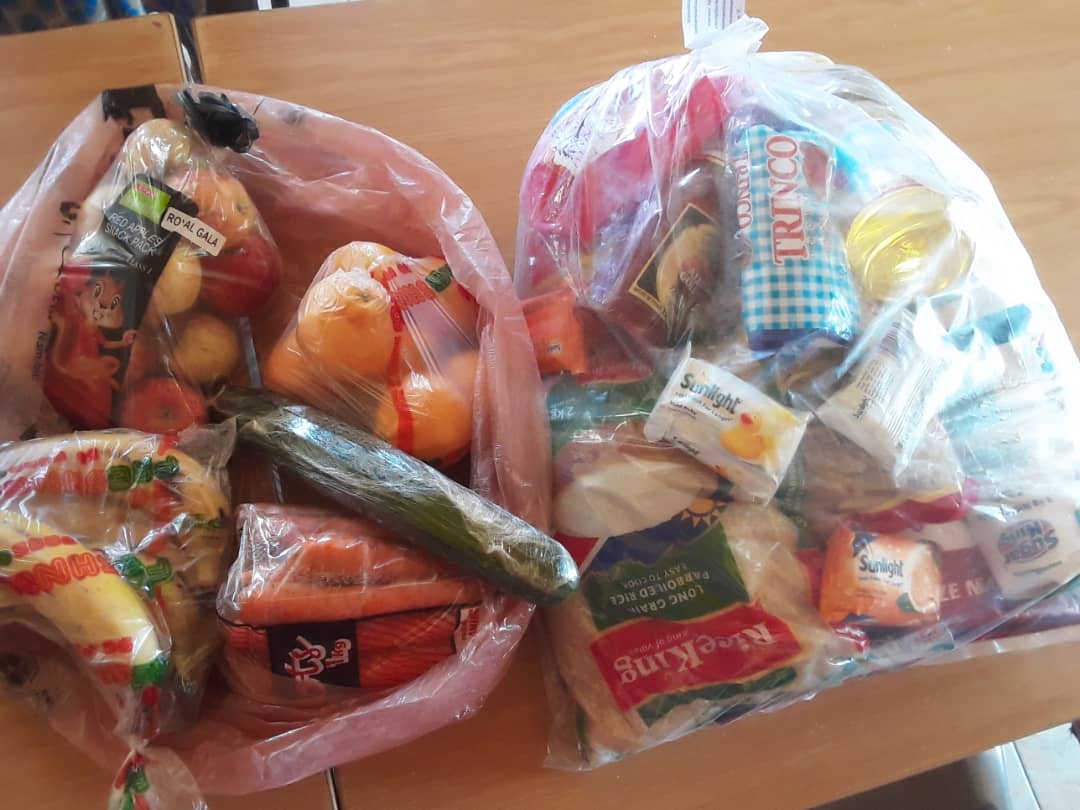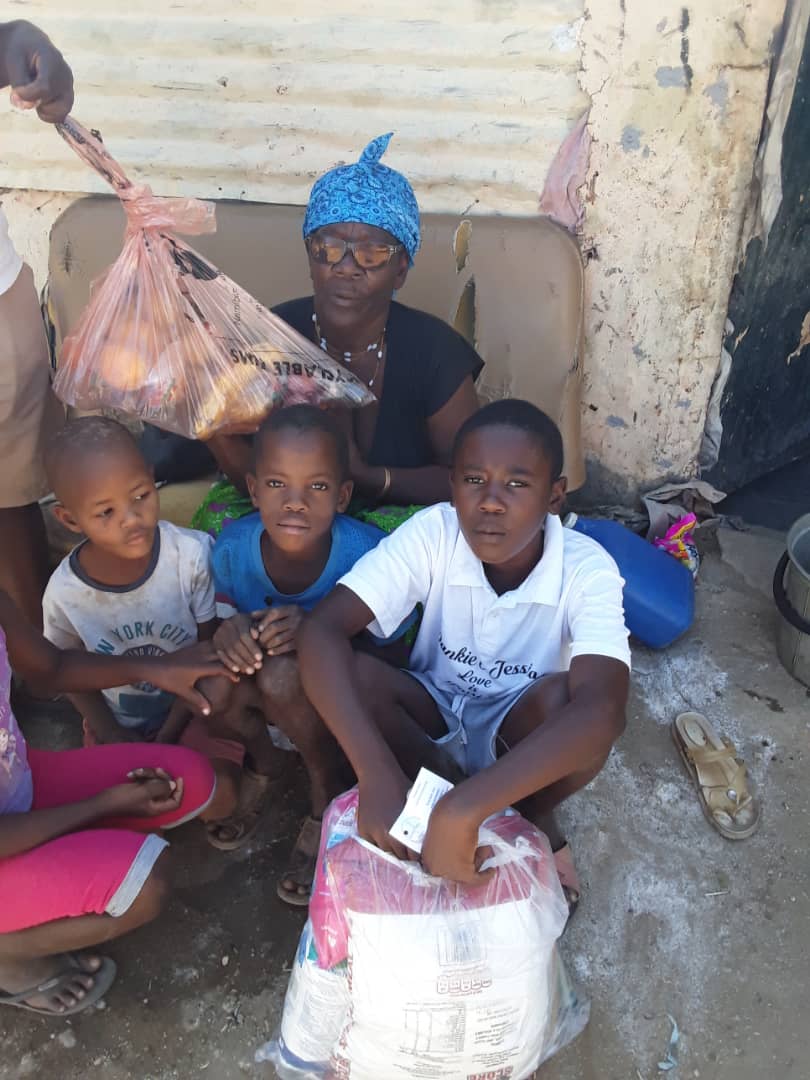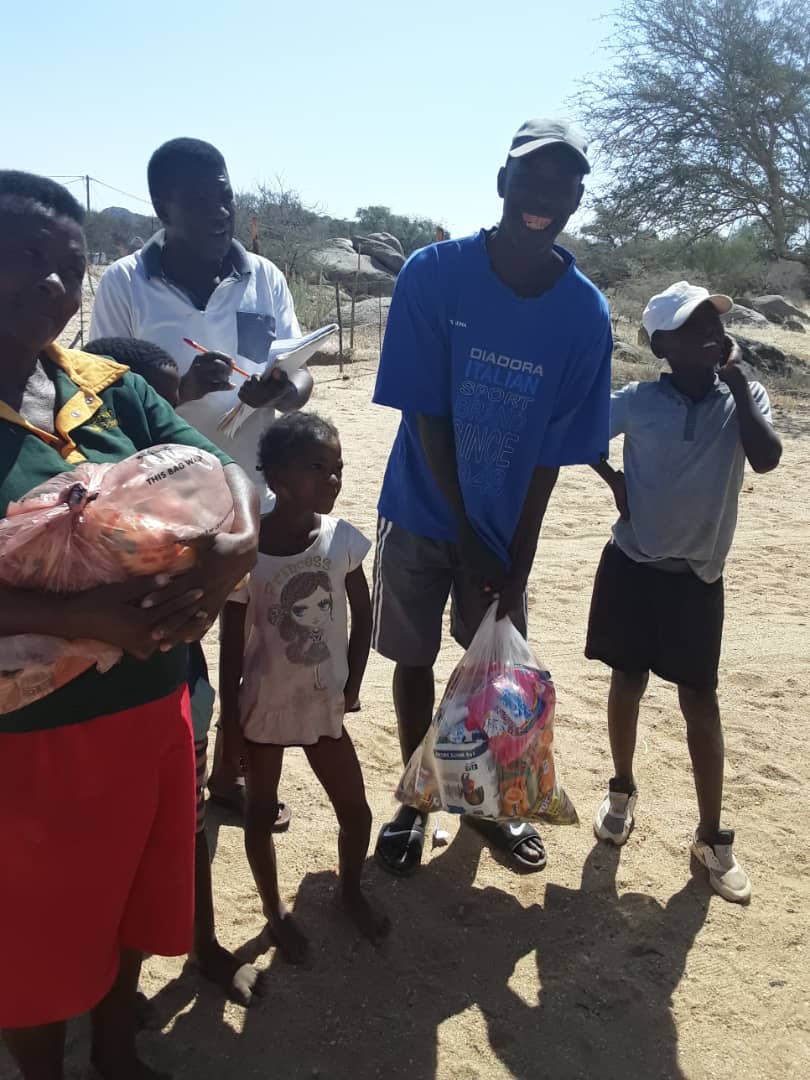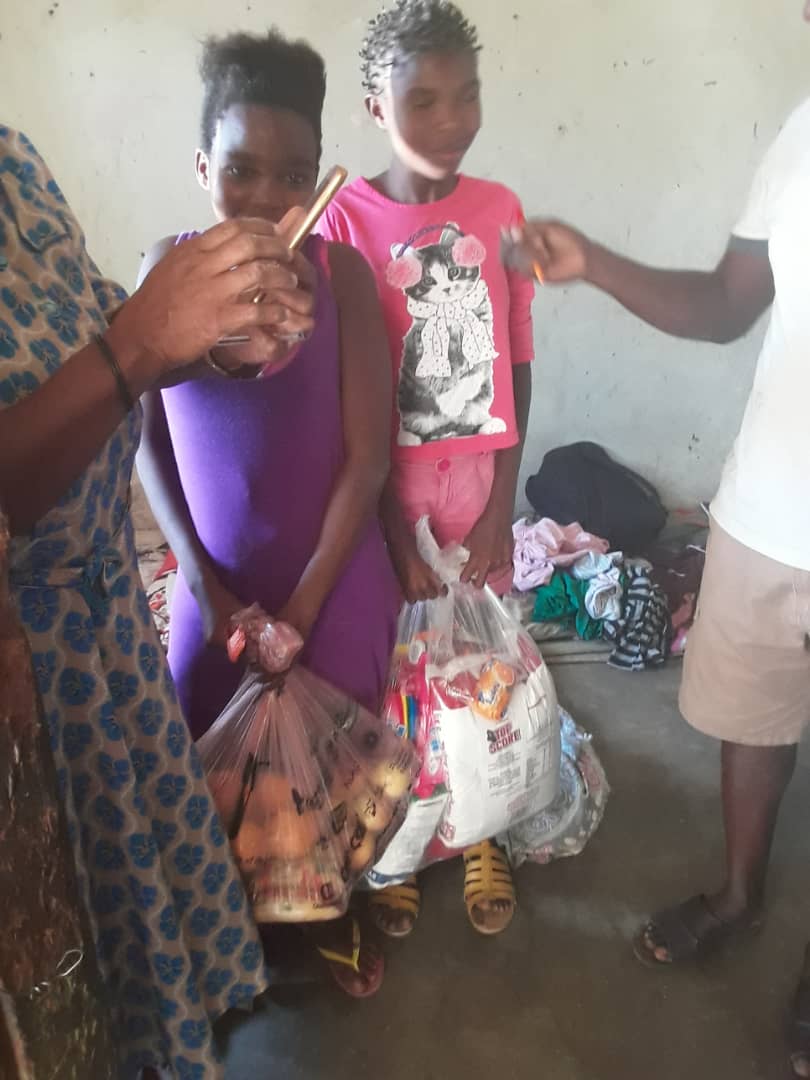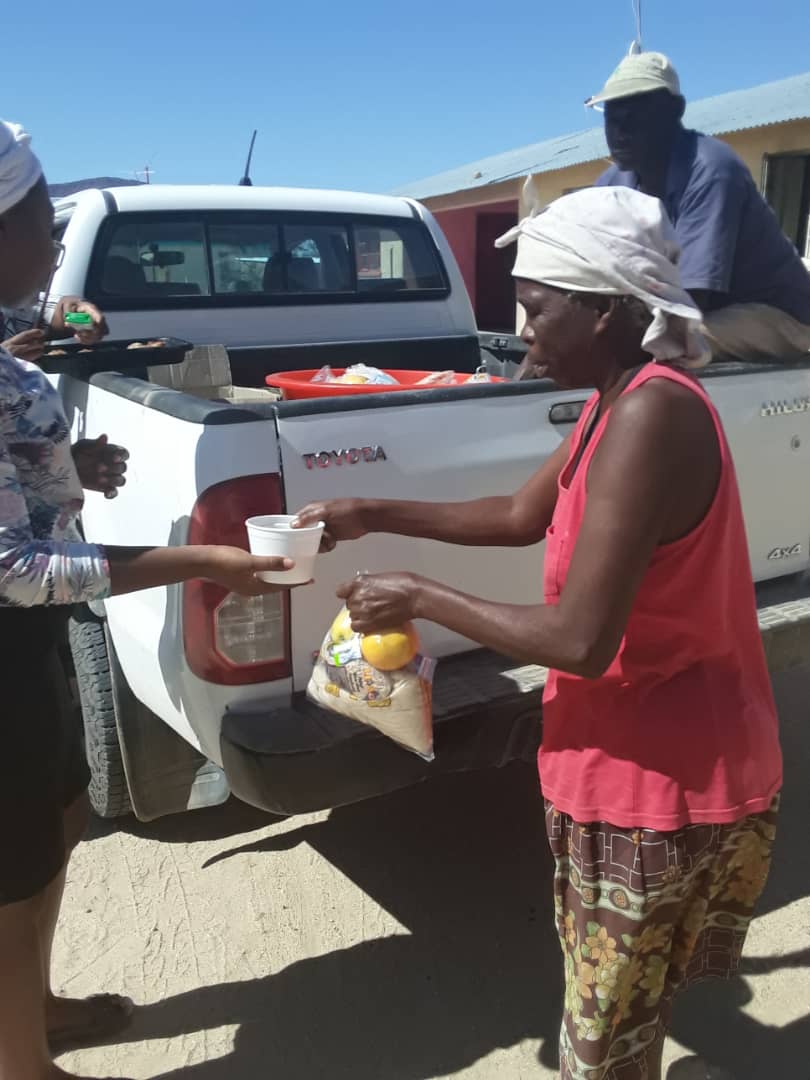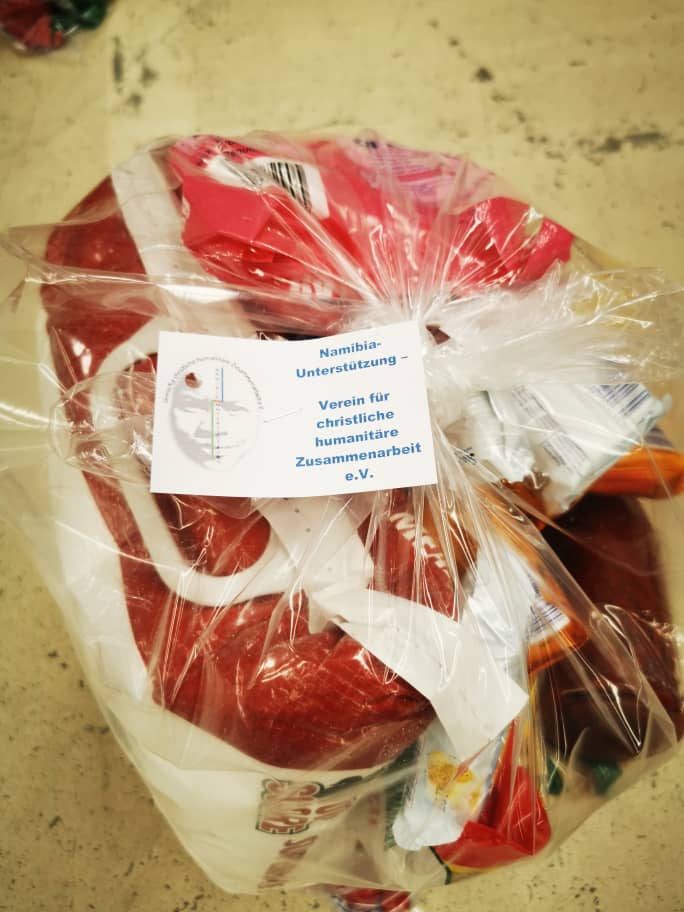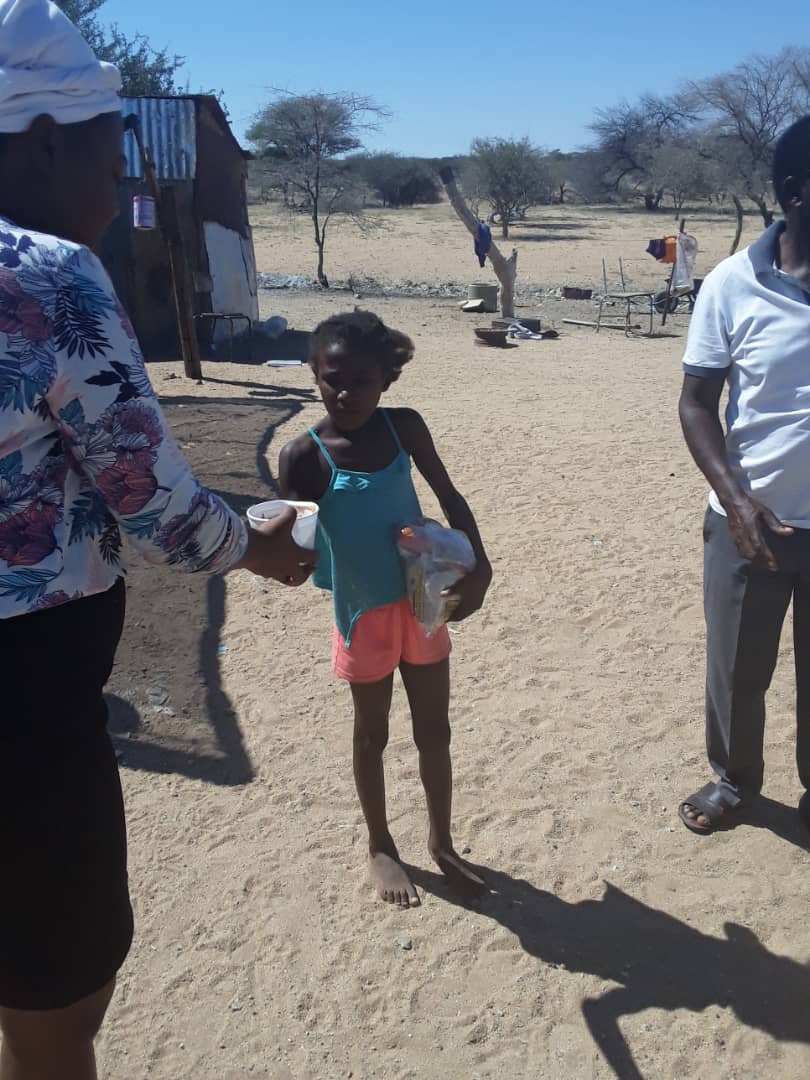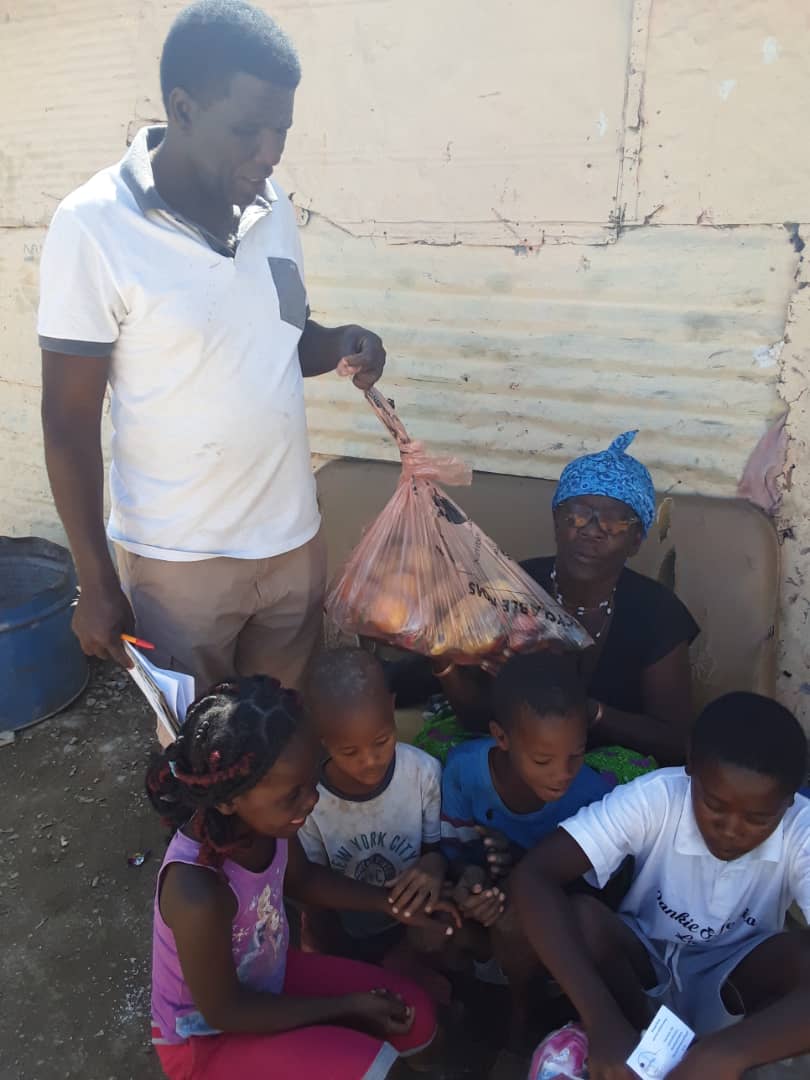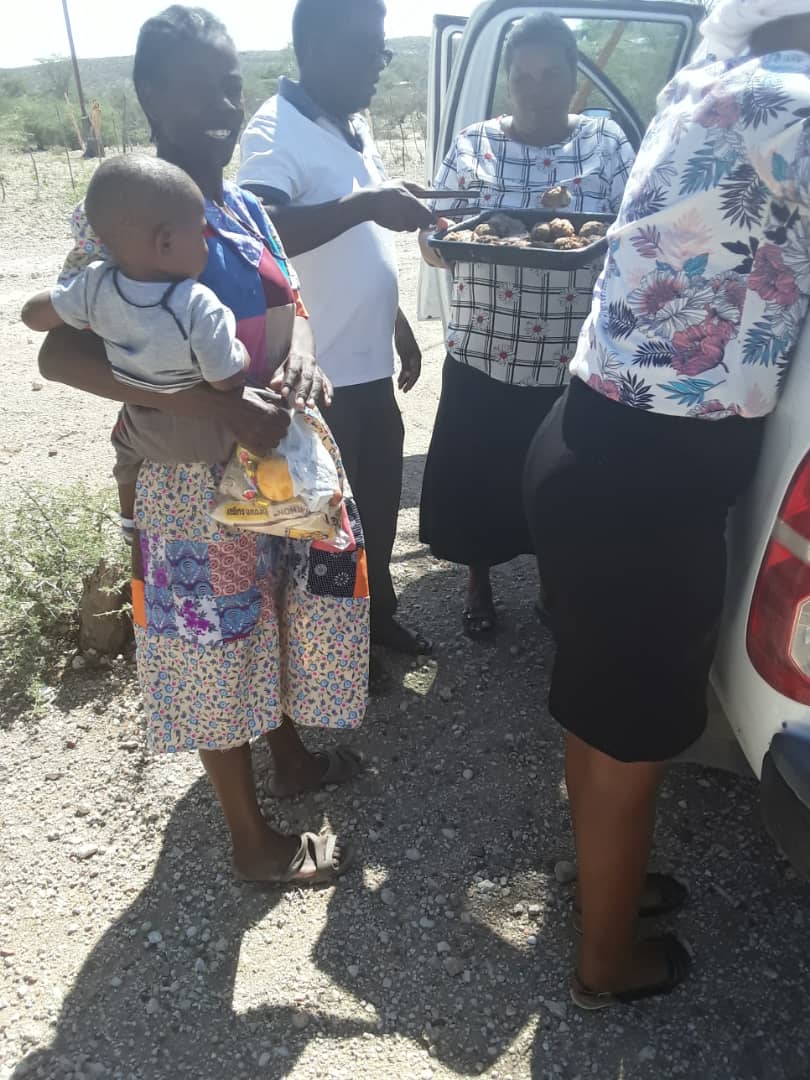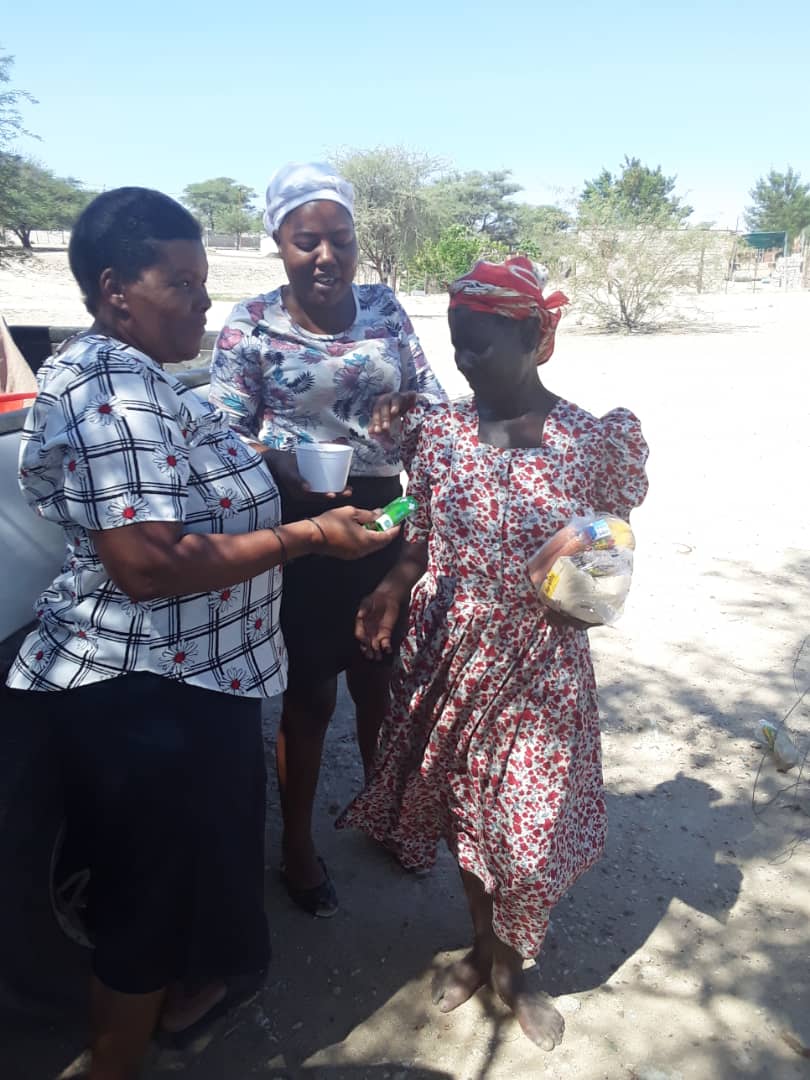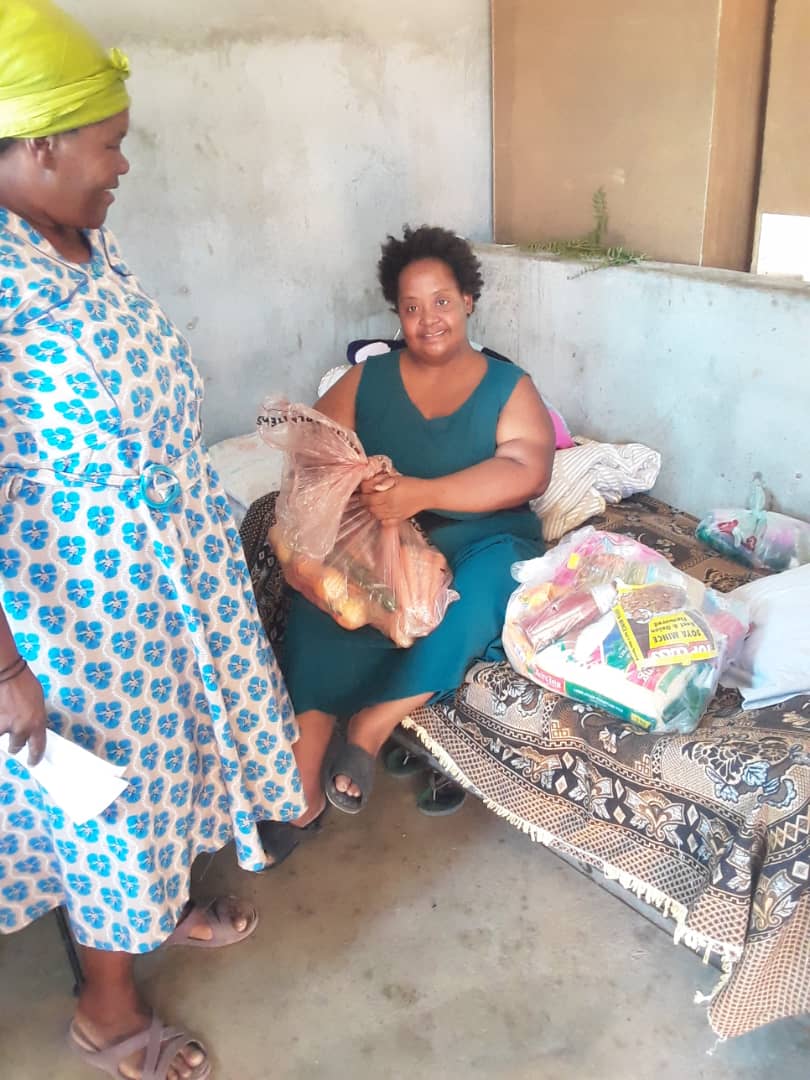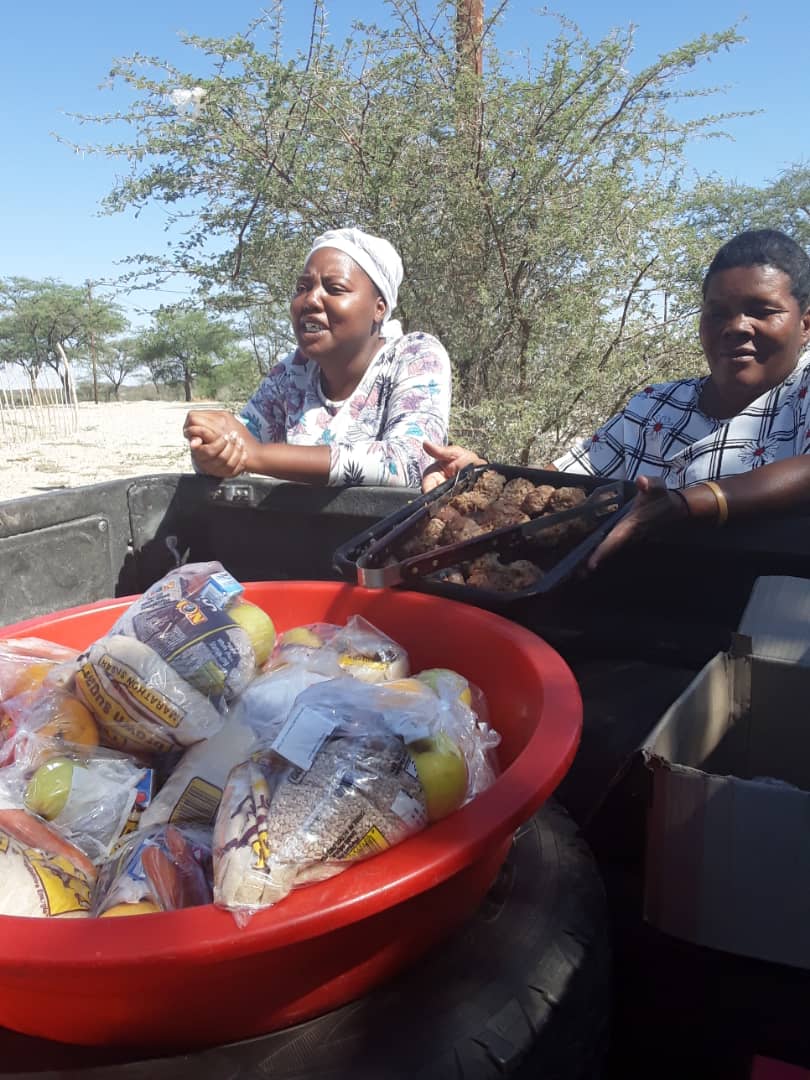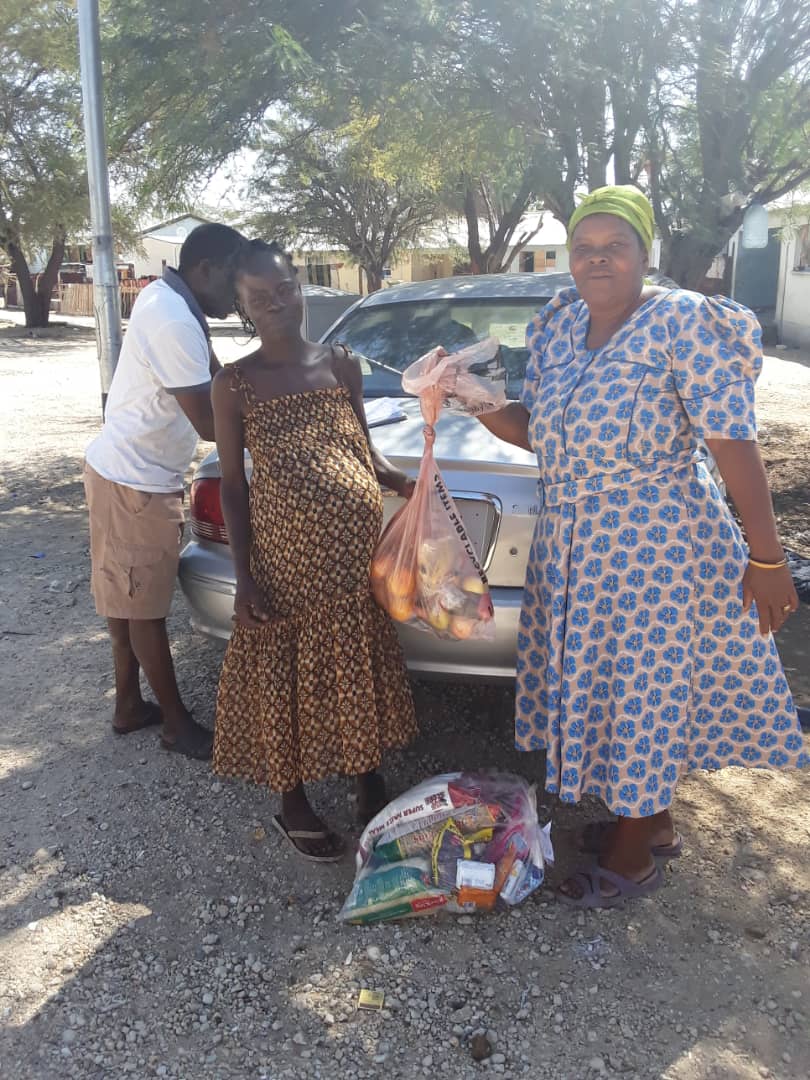Report of the Chairman following the visit to Namibia
Overall, I, Joachim Knoche, was able to accomplish a great deal and make significant progress during my five weeks in Namibia. Corona was no longer a major issue in Namibia; many people wore masks as stylish neck ruffs. Unfortunately, however, new infections are currently rising again, and stricter measures are being implemented.
I will try to give you some initial feedback in three points.
1)I was able to visit many of the 70 schoolchildren supported by the association in their dormitories and talk to them about their feelings and problems. Some were not present, as only half the students are taught at any one time.
2)During the COVID-19 lockdown, we were able to deliver approximately €12,000 in aid to Namibia. In addition to the 1,700 masks sewn by local women, we distributed more than 300 large food parcels. These parcels were vital for everyone who received them, but they also sparked considerable envy among others. Emergency aid is only a suboptimal solution, even when distributed by local officials.
Strengthening people's self-reliance is particularly important to us. That's why I've repeatedly raised awareness of the local market in Okombahe. Many people there produce beautiful things (textiles, handicrafts, but also vegetables, eggs, chickens, etc.) which they can't sell anywhere else. Only through a local market can the money stay in their community.
3)Many disadvantaged children and young people in Okombahe need a day center to receive support services. In the medium term, we plan to build a day center there that will meet two requirements: First, approximately 30 needy and neglected children will be registered by their guardians and will then be required to attend from midday until evening to receive meals and academic support. Second, the center will also be open to day visitors who, for a small fee, can use the facilities (Wi-Fi, computers, homework help, learning opportunities, sports activities, etc.). The management of this larger day center can only be undertaken by a well-trained individual (in management and pedagogy) who will also live in a new apartment on site.
Why is the chairman flying to Namibia?
Joachim and Margret Knoche's stay in March was already marked by the lockdown of schools and kindergartens in Namibia.
1)Since they had no opportunity to meet all 70 supported schoolchildren and speak with those responsible, this will now be rectified. These personal relationships are important to the association. Only in this way do the students learn that the donations the association receives from them are not a given, even in Germany.
2)In recent months, the association has distributed over €12,000 worth of additional food packages and commissioned the production of face masks. Now, the aid needs to be evaluated, and the association will work with the people to determine how to strengthen self-help initiatives. Would additional water wells in Okombahe be beneficial? The association could build them with the help of an expert who is also a member. But is this legally permissible, how much would they cost, and what requirements must be met during construction? Are there any communal gardens that could benefit from an additional well to operate economically? These gardens could then regularly supply the association's two or three soup kitchens in Okombahe.
3)Discussions should be held with local residents in Okombahe to determine the needs of the children who use the soup kitchen during school holidays or in the afternoons after school. The plan is to establish a day center for these children, offering homework help and other educational activities. But what do the local people think? Is a larger day center in the village center more suitable, or would three smaller facilities be more practical in the sparsely populated village of Okombahe? What building plots or premises can the local council allocate to the association, and under what conditions? Only then can construction and the search for qualified staff begin.
4)Furthermore, there are many children in Okombahe supported by the association who do not finish school successfully and afterwards end up on the streets or only find casual labor. For these young people, there is the opportunity to participate in vocational training in Swakopmund, ranging from three months to two years, at a reasonable price. To make this possible, the framework needs to be established, including provisions for accommodation and support in Swakopmund, as well as for the selection of the young people and their own initiative. To what extent can they support the community of Okombahe or other people after completing their training?
5)The association currently has three externally funded projects that are not yet completed. Separate discussions need to be held for each of the three projects.
6)Two exchange projects (a school partnership and a project trip) have been postponed from this year to next year, and a work camp for young adults is planned for 2021. All three exchange trips need to be prepared, discussed, and planned in more detail. Which local staff members are available? How will the exchanges be structured in practice?
7)As a registered association (e.V.) based in Pfedelbach, the association requires legal representation in Namibia, either through a branch of the German association in Namibia or a new organizational structure there. To make this decision, legal information is being sought and discussions with a law firm are taking place.
8)Since the German tax office requires a receipt for every euro spent in Namibia, many documents need to be collected again.
9)While the chairman is in Okombahe, Namibia, confirmations are taking place at the local Protestant church, with support from some of the confirmands' parents from Untersteinbach. This allows them to bring back current photos and convey personal greetings from the Untersteinbach church community.
10) Last but not least, I have maintained many personal relationships with former students and friends in Namibia for many years. These relationships take time to cultivate.
A long list of tasks needs to be addressed and considered. In retrospect, we'll see what was possible. I'm grateful if you'll accompany me in prayer or with kind thoughts.
If you are interested in reports from the trip, please briefly express your interest to contact@namibia-verein.de.
Intercultural exchange trip with workcamp
The Namibia Support Association would like to conduct a three-week exchange trip with a work camp in Okombahe in August/September 2021.
Six young adults aged 18 to 30 can participate in the trip, which begins with a stay in Windhoek. During a two-week work assignment in Okombahe, they will work alongside young Namibian adults to repair and build playgrounds for children and teenagers. Participants will also have the opportunity to get involved in social projects for children. In addition to the collaborative work, the focus will be on meeting young Namibians and experiencing their way of life in the rural, simple, and traditional village of Okombahe. The trip concludes with a safari tour to Damaraland and the Etosha Pan, together with the young Namibians.
Everyone interested in this trip is prepared to live simply during this time and make contact with young Namibians.
The flight and the final tourist portion of the trip are the responsibility of the participants, while the time spent together in Okombahe and transportation costs within the country are subsidized. Margret and Joachim Knoche, who themselves lived in the area for eight years, will lead this trip together with a young couple from Öhringen.
If you are interested, please write to the Namibia Support Association at contact
Namibia is no longer considered a risk country.
Notes from Namibia, October 19, 2020
Since October 15, 2020, the German Federal Foreign Office has lifted its specific travel warning for Namibia. The number of new infections and deaths from COVID-19 has steadily declined in Namibia in recent weeks. The current incidence rate for Namibia is hovering around 15, meaning that, from an epidemiological perspective, the Robert Koch Institute no longer issues a travel warning from Germany.
At the end of September, the state of emergency in Namibia was lifted by the president. Since then, daily life has been returning to normal. The borders are also partially open; all arrivals must register their location for the first seven days and undergo another Covid-19 test after five days.
In mid-September, we received another plea for help from Okombahe. This time it was the younger adults asking for food rations. Most of them are unemployed migrant workers from the coastal region or other cities, where they lost their jobs during the lockdown and therefore returned to their families in Okombahe.
Through the Protestant church, we again distributed 63 large food packages (costing €1650) to young adults and their families. This was a typical COVID-related aid measure that was urgently needed, but is now unnecessary as life returns to normal.
Thank you so much for your generous donations, which have enabled us to provide substantial assistance over the past six months. We have distributed over €12,000 worth of food packages and had face masks produced. If you would like to support the association's projects, you are welcome to make a transfer to our association account.
The critical threshold has been breached again.
Current notes from Namibia, September 14, 2020
In August, the number of new COVID-19 infections rose sharply in all regions of Namibia, but especially in the capital, Windhoek. As a result, President Hage Gaingob reimposed stricter restrictions across the country in recent weeks. The borders remain closed to tourists, and only graduating classes are attending regular school. However, since the end of August, the number of new infections has been declining slowly but steadily. Hospitals are also reporting no dramatic overcrowding. Nationwide, the seven-day incidence rate of new infections per 100,000 inhabitants has now fallen below the critical threshold of 50. In mid-August, this figure was nearly 80.
As of today (September 14th), all students are back in school, and kindergartens have also reopened. Everything is subject to social distancing rules and the wearing of face masks.
The soup kitchens have been able to continue operating in recent months thanks to a hygiene plan. The significant difference compared to before is that considerably more children, teenagers, adults, and the elderly are now coming to our three soup kitchens to get food. Yvonne, Pastor Andreas's wife, reports 300 people per meal; previously, her soup kitchen served about 45 secondary school students. Albertina also reports a significant increase in visitors. This prompted our organization to provide additional support. Both soup kitchens can now purchase larger quantities of food from the grocery store in Omaruru, and at the end of August, another 60 larger food packages were distributed to needy families in Okombahe. Each of these food packages can feed several people for one to two weeks.
In Omaruru, we are also temporarily supporting a soup kitchen run by the church, which cooks ready-made meals and distributes them in sturdy containers. The 110 children collect the food and take it home, where others are waiting for it.
Thanks to your generous donations, we were able to provide an additional €4,500 in the last two months for extra meals and hygiene measures in Okombahe. Sewing washable face masks also helps some women in Okombahe earn a small additional income.
People are very grateful for this, as many have lost their income. This particularly affects day laborers, all employees in the tourism sector, all employees in church-run student dormitories, but also the priests, who are expected to survive on the meager offerings from parishioners who themselves have nothing.
Thank you so much for your generous donations. It's wonderful that so many people support those in the Global South beyond their own needs. If you would like to support the association's projects, you are welcome to transfer funds to our association account.
Summer holiday in Namibia?
Current notes from Namibia, August 2, 2020
No, thank you! This summer is definitely out of the question. The German Foreign Office still has a travel warning in place until at least August 31st, and Namibia isn't allowing tourists into the country yet either.
What are the latest developments in Namibia?
Now, during the winter months, when it's damp and cold on the coast, the number of infections is rising significantly: In the last seven days, there have been 538 new cases, which, with a population of approximately 2.3 million, equates to 23.4 cases per 100,000 people. This isn't alarming, especially since the hospitals aren't more crowded than usual and there have only been 10 deaths so far with COVID-19 symptoms. Furthermore, Namibia conducts a relatively high number of regular tests, unlike many other countries.
President Hage Gaingob announces the new measures every two weeks. Grades 10-12 will remain in school and prepare for their final exams, while grades 1-9 will now not return to school until the end of August. Gatherings of up to 100 people are permitted, for example, weddings, religious services, and funerals. Team sports may take place, but without spectators. Only the urban districts of Walvis Bay, Swakopmund, and Arandis have even stricter restrictions, as over 90% of infections originate from these areas. Read more
Ein Bus für eine Schule im afrikanischen Busch
Aufgrund der südafrikanischen Apartheit musste die Martin-Luther-High-School 1969 von der Stadt Karibib, die zum Gebiet für „Nur-Weiße“ erklärt wurde, in die Nähe von Okombahe, dem Homeland der Damaras verlegt werden. An dieser ehemaligen Missionsschule, an der damals überwiegend weiße Lehrkräfte schwarze Schüler unterrichteten, durfte diese Internats-Schule weitab von jeder anderen „weißen“ Siedlung mit einer Sondergenehmigung errichtet werden. In der 70km entfernten Stadt Omaruru gab es die Infrastruktur, die jede Schule braucht: eine Eisenbahnstation, von wo die Schüler abgeholt werden mussten, ein Postamt, in dem die Post gelagert wurde und natürlich die Lebensmittel- und Versorgungsgeschäfte. Damals wurde ein Mercedes-Benz LKW 1113 so umgebaut, dass hinten auf der Ladefläche 70 Schülerinnen und Schüler mit ihrem Gepäck transportiert werden konnten. Es war jeweils eine staubige Angelegenheit, doch der Transport und der Gesang der 70 Jugendlichen auf ihrer „Lorry“ hat Geschichten geschrieben. Joachim Knoche, der mit seiner Frau in den 90iger Jahren an der Schule für 8 Jahre unterrichtet hat, ist selbst auf dem Lastwagen öfter mitgefahren.
Bild: Die Mercedes-Benz Lorry von 1969
Knapp 50 Jahre wurden die Schülerinnen und Schüler auf diesem robusten Fahrzeug transportiert, bis er nun nicht mehr zu reparieren war. Zwei Jahre lang war die Not groß, als kein größeres Fahrzeug für diese Internatsschule mitten im Busch zur Verfügung stand. Zusammen mit der Bosch-Stiftung „Cents for help e.V.“ konnte der Namibia-Unterstützungsverein nun helfen.
Noch vor dem strengen Lockdown wurden vom Verein 20 000 € für einen generalüberholten, gebrauchten Mercedes-Bus, 38-Sitzer mit Gepäckraum, überwiesen, der die letzten 20 Jahre Touristen durch Namibia chauffiert hatte. Die Freude bei der namibischen evangelischen Kirche als Träger der Schule und bei der Schule selbst war sehr groß.
Current notes from Namibia, July 13, 2020
In Namibia, too, the motto is "wait and see," if you have the tea. The COVID-19 case numbers are developing very differently across Namibia, and the measures are being adjusted accordingly.
Today, July 13th, 785 infections, one death, and 800 people currently in quarantine have been confirmed. The vast majority of these cases are from the wintry, wet and cold areas of Walvis Bay and Swakopmund, and these districts remain under strict lockdown. In most of the country, restrictions are being eased; most students are returning to school, and life is gradually becoming more normal. However, the tourists, who are crucial for the livelihoods of approximately one in three people in Namibia, are missing. National tourism is taking place, but most hotels, lodges, and nature reserves cannot survive on it. International airports also remain closed. The national airline, Air Namibia, has once again been under scrutiny since last week. As of today, there is a new CEO, Theo Mberirua, who is said to have previously rescued other companies. Everyone can imagine what this means: further layoffs and cost-cutting measures. The airline needs more than €400 million to be rescued and profitable again. The formerly daily flights to Frankfurt will probably only become profitable in the medium term through a joint venture, possibly with Lufthansa.
The government announced a few weeks ago that it would fly in around 1,000 test tourists in mid-July, who would have to present a negative coronavirus test result less than 72 hours old upon entering the country. A potential quarantine would spell the end for short-term tourism. But the German travel warning is still in effect at the moment.
Therefore, Namibian society must focus on itself for the time being. And perhaps that's a good thing! Read more
In February, even before Margret and Joachim Knoche traveled to Namibia for a month in March to work on the association's projects, the children and parents of the kindergarten in Heuberg learned a great deal about Namibia, the lives of the children, the animals, and the local customs at two information sessions held by the association's chairman. There was great interest in the two rural African kindergartens and the Toy Library – a room filled with educational toys. The teachers presented Joachim Knoche with a wonderful folder they had compiled themselves, containing many pictures and information about the Heuberg kindergarten, a recording of a carnival song, and individual donations. Read more
Current notes from Namibia, June 6, 2020
Since the beginning of June, Namibia has entered Phase 3 of its COVID-19 easing program. This means that most people are back at work, Namibians can move freely within the country, restaurants and lodges are allowed to reopen, and alcohol can be purchased and consumed again, though not yet in restaurants. Students in grades 11 and 12 have resumed classes, and the other grades will follow in the coming weeks, so that all students will be back in school by mid-July. There will be no more extended holidays, and the school year will likely run for four weeks longer, until just before Christmas. This is how the government is trying to ensure that the missed learning is made up.
So far, the number of confirmed coronavirus cases is very low. Today (June 6, 2020), 29 cases are known, of which 13 are still active and 800 people are in quarantine. Most of those infected were in South Africa for work, for example as truck drivers or students, or entered the country via the only major deep-sea port, Walvis Bay. The government is being very cautious in Namibia. There is great concern that an outbreak among the people living in close quarters in the informal settlements (corrugated iron shantytowns) and the potential hospitalizations cannot be controlled. Since the most recent known cases all originated in Walvis Bay, the transshipment point on the Atlantic coast, the city is now completely sealed off again and a strict curfew is in place. This, of course, has consequences for the entire country, as the goods delivered by ship can no longer be distributed. Read more
Current notes from Namibia, May 16, 2020
Pastor Absalom/Keib and his wife Bianca live in Omaruru, about three hours northwest of Windhoek. He is the pastor of the Evangelical Lutheran Church there. Many people in need live in his parish, and the strict lockdown imposed by the Namibian government has plunged them into dire straits. All the day laborers and street vendors have lost their income. He and his wife run a regular soup kitchen for children and teenagers who rely on a regular meal. Over the past few years, I've had occasional contact with the parish during my travels, and the Namibia Support Association has provided sporadic assistance to the soup kitchen as a result.
Last week, we received a letter and a phone call from them explaining that the special circumstances of the coronavirus measures have led to widespread hunger in their community. Thirty-five households, in particular, are in urgent need of assistance. Their request: Could we provide a one-time donation? They sent us a letter with suggestions for what could be included in a relief package: cornmeal, sugar, baking flour, oil, rice, tea, and coffee. This was to cost €15 per package. Our association's committee quickly agreed that we should help – also thanks to YOUR coronavirus donations. In consultation with the local grocery store, we supplemented these packages with non-perishable and dried vegetables, some fruit, soap, and laundry detergent, bringing the cost per package to €25. We ordered not just 35 packages, but 36, so that the pastor and his wife, who have also lost their income, could keep one for themselves.
In addition to the food parcels, a woman from the community has volunteered to make 100 washable face masks for €1 each, in order to earn a small income. Face masks have been mandatory in Namibia since this week.
All in all, this aid package for 36 households now cost €1000. Read more
Aktuelle Notizen aus Namibia 2. Mai 2020
Von Dienstag, 5. Mai, werden die strengen Ausgangsbeschränkungen etwas gelockert. Menschen dürfen sich nun wieder im ganzen Land frei bewegen, müssen aber in der Öffentlichkeit eine Gesichtsmaske tragen. Besonders bedürftige Personen bekommen von der Regierung einige Masken gestellt. Die Außengrenzen bleiben weiterhin geschlossen, nur dürfen nun Namibier mit einer zweiwöchigen Quarantäne wieder zurück in ihr Land kommen. Größere und kleinere Einzelhandelsgeschäfte haben wieder geöffnet, auch Straßenverkäufer, Restaurants und Lodges, die Essen anbieten, dürfen dies als Take-Away verkaufen. Schönheitssalons und Frisöre dürfen unter besonderen Hygiene- und Abstandsregelungen geöffnet werden.
Ansonsten bleiben Restaurants, Hotels, Theater, Kinos, Fitnessstudios, Nachtclubs, Kasinos, Seminare, Konferenzcenter und Vergnügungsparks geschlossen und Alkohol darf weder gekauft noch verkauft werden. Öffentliche Versammlungen sind nicht erlaubt, somit auch keine Gottesdienste und Gemeindeversammlungen.
Diese Phase zwei gilt vorläufig bis zum 2. Juni.
In der Phase drei, die den ganzen Juni über gilt, werden die Gastronomie- und Hotelbetriebe und kulturelle Einrichtungen wieder geöffnet, jedoch mit der Auflage, dass der Alkohol nur im privaten Bereich getrunken werden darf. Hoffentlich sind dann die kirchlichen Veranstaltungen wieder (eingeschränkt) erlaubt.
In der Phase vier beginnt dann die „Neue Normalität“. Es werden ab Ende Juni auch wieder schrittweise die Grenzen zu ausgewählten Ländern geöffnet und der Schul- und Universitätsbetrieb soll dann wieder ab Anfang August in regulärer Form beginnen.
Diese drei weiteren Phasen können jedoch aufgrund besonders Umstände verkürzt oder verlängert werden. Doch gibt es nun in Namibia diesen 4-Phasen-Plan, an denen sich die Menschen orientieren können.
Was heißt das nun für unseren Verein?
Die letzten fünf Wochen mit strenger Ausgangsbeschränkung haben bei den Menschen ohne feste Arbeit, den Tagelöhnern und Gelegenheitsarbeitern viel Armut und Not hinterlassen. Aber auch die Pastoren und kirchlichen Angestellten werden in den nächsten Wochen noch nichts wieder verdienen. Auch die Schulspeisungen für die Grundschüler gibt es erst ab August.
Albertina und Yvonne werden ihre Suppenküchen jetzt mit gebotenen Abstandsregeln wieder öffnen, aber vermutlich kommen wesentlich mehr Kinder und Erwachsene, die dringend auf diese Extra-Mahlzeiten angewiesen sind.
Ich danke allen Spendern, die uns in dieser besonderen Zeit eine Extra-Spende geschickt haben. Wir werden dieses Geld und zusätzliches Geld aus unserem Vereins-Etat dazu benutzen, um die Not bei den Menschen in Okombahe und in anderen Teilen Namibias etwas zu lindern.
Current notes from Namibia, April 26, 2020
As I reported in my last "Notes from Namibia," Namibia has been under a strict nationwide lockdown with strict stay-at-home orders for a week now. As a result, everyone without a regular income no longer has the opportunity to earn money through casual work or street vending. Last week, I wrote about the remarkable government aid measures that are helping approximately 150,000 people survive. Just before the lockdown, some people traveled to their small, private family farms, but many are remaining in Okombahe.
According to my information, the government aid has not yet reached rural Okombahe. Albertina, one of our volunteers, called us and asked us to think of the approximately 30 families with children who rely on our soup kitchens and who currently have nothing. Our two soup kitchens, as well as the state-run school meals program for primary school children, stopped operating in mid-March when all schools were closed and gatherings of larger groups were prohibited. After a brief consultation, Albertina went to Omaruru for her monthly shopping trip and, together with Desiree, a secretary from the mayor's office, packed the groceries into 30 individual bags. Augustinus, the deputy headmaster of the primary school, who also has a good understanding of the children's situation, joined them to distribute these 30 packages along with some soup and meatballs. Read more
Several new developments have occurred there in the last two weeks. The official figures currently (April 18, 2020) still show 16 confirmed positive cases of COVID-19 and no deaths, but these figures should be treated with caution given the limited testing and the official ban on publishing current numbers. However, since we haven't heard anything to the contrary from many friends via email or WhatsApp, the medical situation in Namibia doesn't appear to be dramatic. The partial lockdown for the capital and surrounding regions has been extended to the entire country until May 4th. Only the fishing industry is allowed to continue operating under certain conditions. The Namibian lockdown is comparable to a curfew; apart from medical appointments and grocery shopping, no one is allowed on the streets, and there is also a general ban on buying alcohol. Schools are, of course, closed until then. Students are supposed to be taught primarily online. But this will only work well for some private schools with students from more affluent backgrounds. The majority of students live very simply or even in remote areas on rural farms. It's likely that some work assignments will be sent via WhatsApp. But the necessary table for completing them should definitely be included. Read more


